The NHS will begin a pilot of its new coronavirus app this week, as a clearer picture of the government’s forthcoming roadmap to end lockdown starts to emerge, with staggered start times likely to be on the cards for the first commuters who return to their desks.
The prime minister is expected this week to launch the government’s action plan to ease the country out of its current restrictive measures, with the lockdown due to be reviewed on Thursday.
The Isle of Wight was announced as the location for the trial of the new smartphone-based coronavirus contact-tracing system.
Download the new Independent Premium app
Sharing the full story, not just the headlines
However, significant challenges remain in getting the new app working, with ministers warning that 50 to 60 per cent of the entire population will have to use it in order for it to have a real impact. That figure means the app will need to become as ubiquitous as WhatsApp – in the space of just a few months – to succeed.
The Cabinet Office minister, Michael Gove, said at the daily news conference in Downing Street on Sunday evening that “the more people who download the app the better” and expressed optimism that people would decide to use it.
“It’s striking how public-spirited people have been throughout the crisis, and knowing that this is a contribution all of us can make to help keep our neighbours and our communities safer is a very powerful incentive, I think,” he told reporters.
The transport secretary, Grant Shapps, admitted that “for various reasons, not everybody will download” the software on to their smartphones – not least because not everybody has one. Nevertheless, he said that installing the programme, developed by NHSX, the health service’s digital wing, was “the best possible way to help the NHS”.
Concerns about privacy have reared their head in countries using similar systems, such as Germany, where health authorities belatedly decided to use a decentralised system run by tech companies instead of a single platform as the UK government intends.
However, the British government says data on the app will be recorded under an anonymous ID rather a name. The programme will use Bluetooth technology to work out when other users are close by, so that those who come into contact with someone later deemed to have been infected can be informed.
The approach has been judged successful in countries such as South Korea and Singapore in allowing some relaxation of lockdown measures while keeping the so-called “R” value – the rate at which the disease spreads among the population – down.
The latest news on Brexit, politics and beyond direct to your inbox
The app seems to be an increasingly important part of the the government’s plans, but ministers have said they are still consulting with experts, employers and unions on what the end of lockdown might look like, and some aspects have started to take shape as its unveiling nears.
While previous reports have suggested that most employees who can will continue to work from home for many months, Mr Shapps said workers who do end up heading back to their desks may have to travel in at different times of day in order to aid social distancing and give people more room on crowded commuter trains.
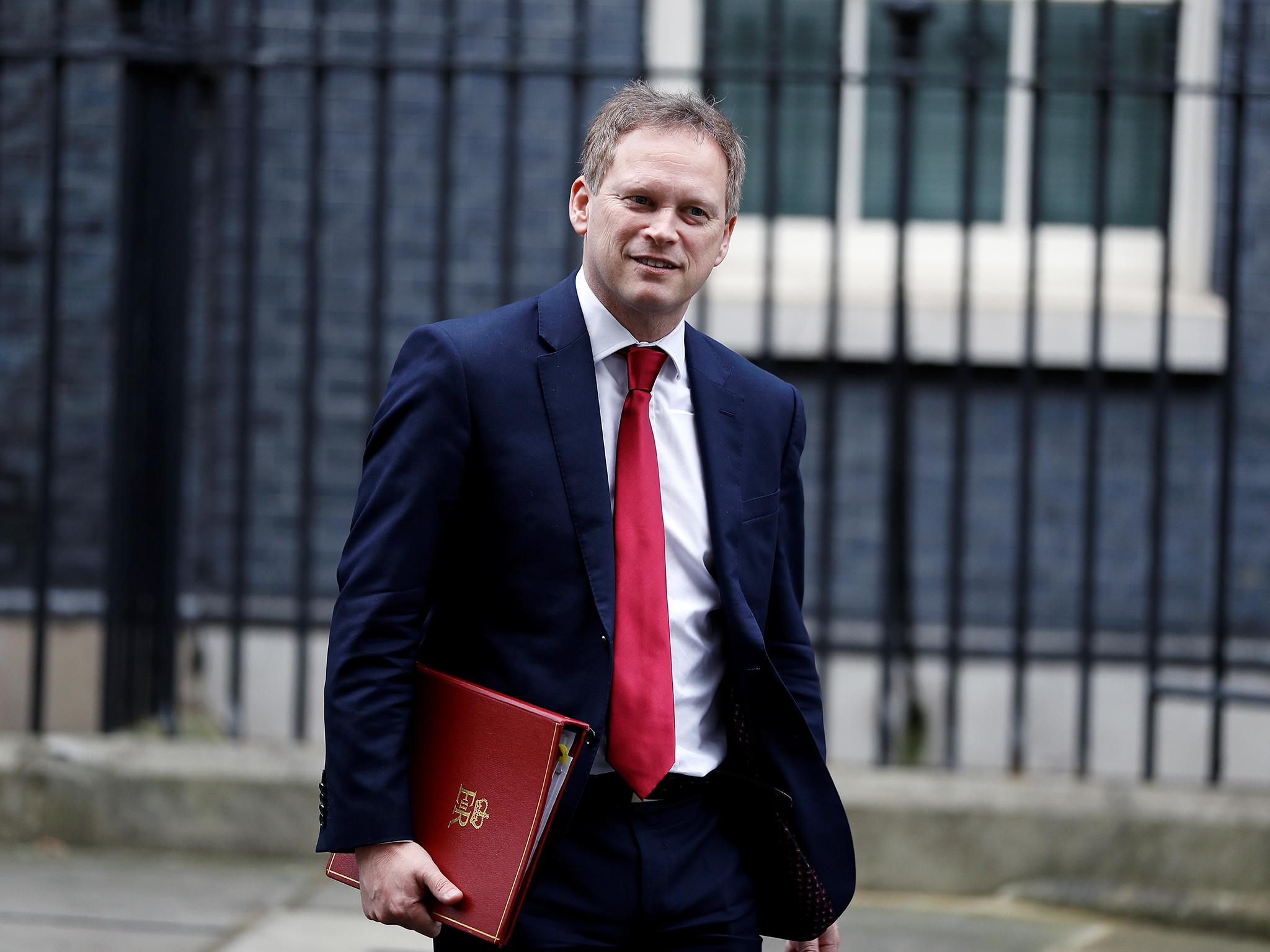
“Things like staggering work times, obviously are very important to avoid those morning peaks. The crushes would be completely at odds with social distancing,” the transport secretary told Sky News.
He also suggested that trains, buses and transport interchanges could be equipped with hand sanitiser, arguing that hand-washing remains more important than wearing face masks – which some countries have mandated. Eurostar said this weekend that all passengers would have to wear face masks, in line with new French and Belgian regulations on public transport.
The Department for Transport is also reportedly considering having commuters take their temperature before boarding trains and buses in order to reduce the chance of ill people mixing with others.
Big political decisions, such as whether to reopen schools, appear yet to have been made. Mr Shapps told Sky News: “It’s no secret that of course we want kids to be able to go back to school, but I’d be over-egging it to say there’s a date in place, there’s a plan in place.”
Addressing the coming roadmap towards the ending of lockdown, Mr Gove said: “We’re consulting with employers and unions, professionals and public-health experts, to establish how we can ensure that we have the safest possible working environments, and the prime minister will be saying more later this week.”
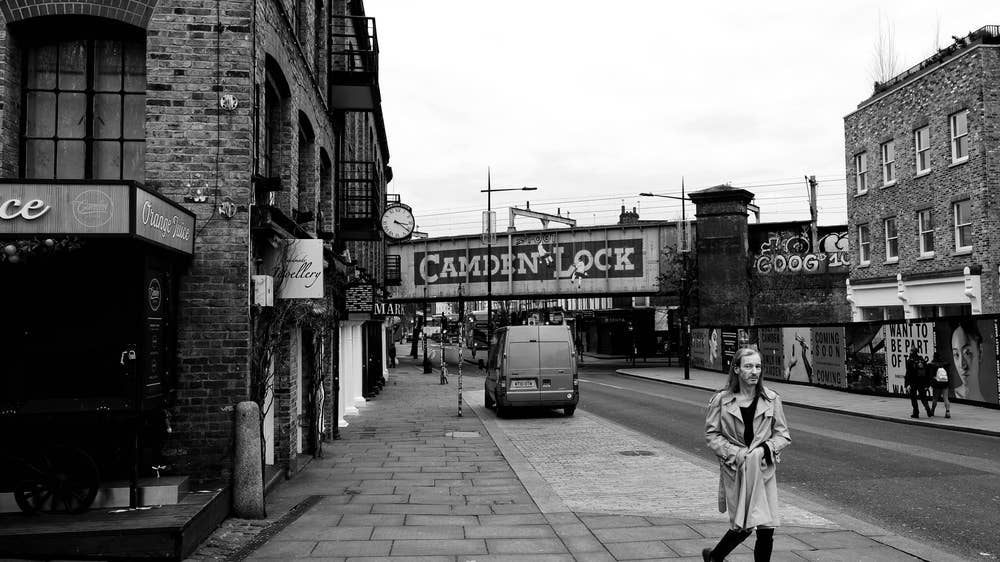
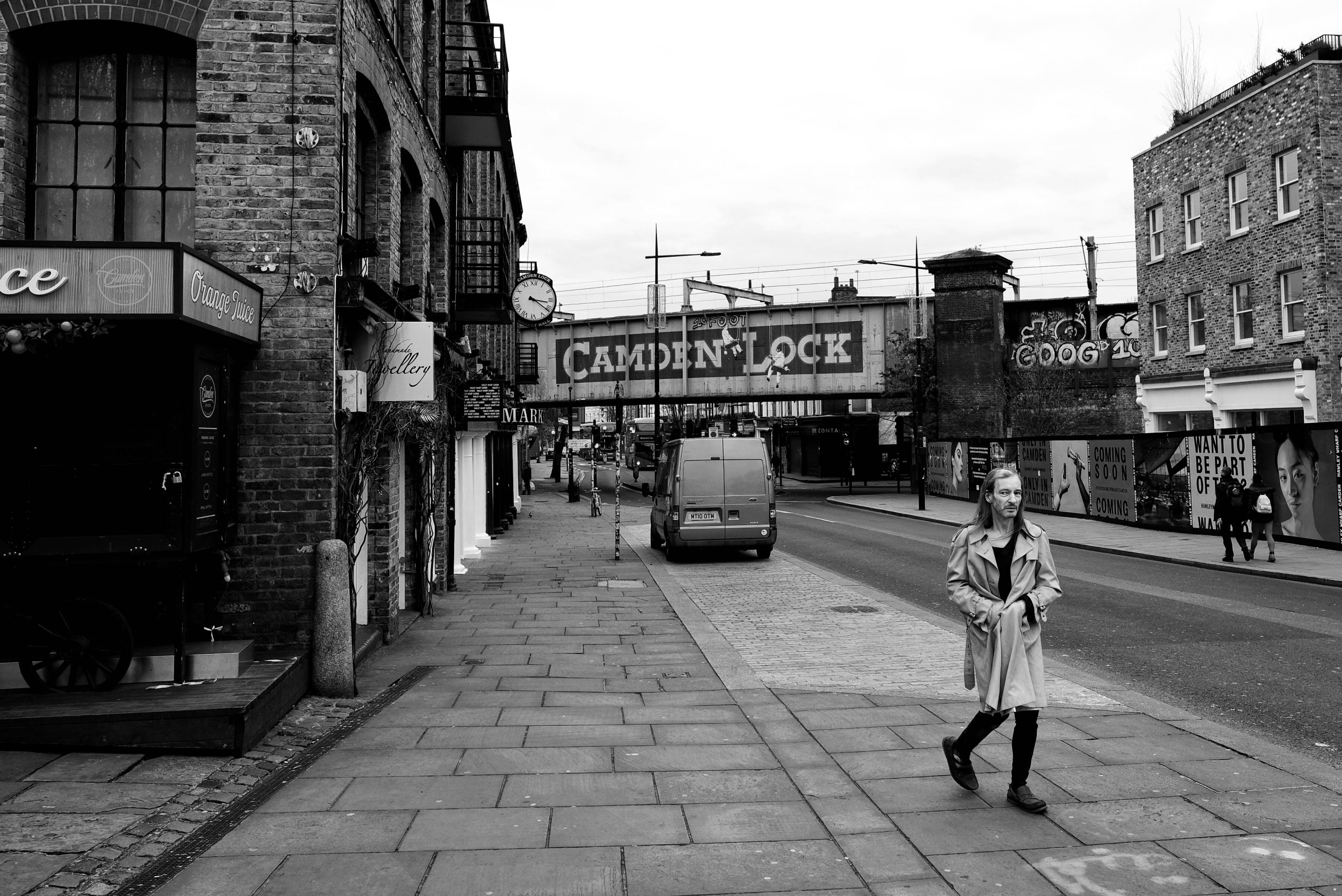
1/29
A man walks down a deserted Camden High Street
Photos Angela Christofilou
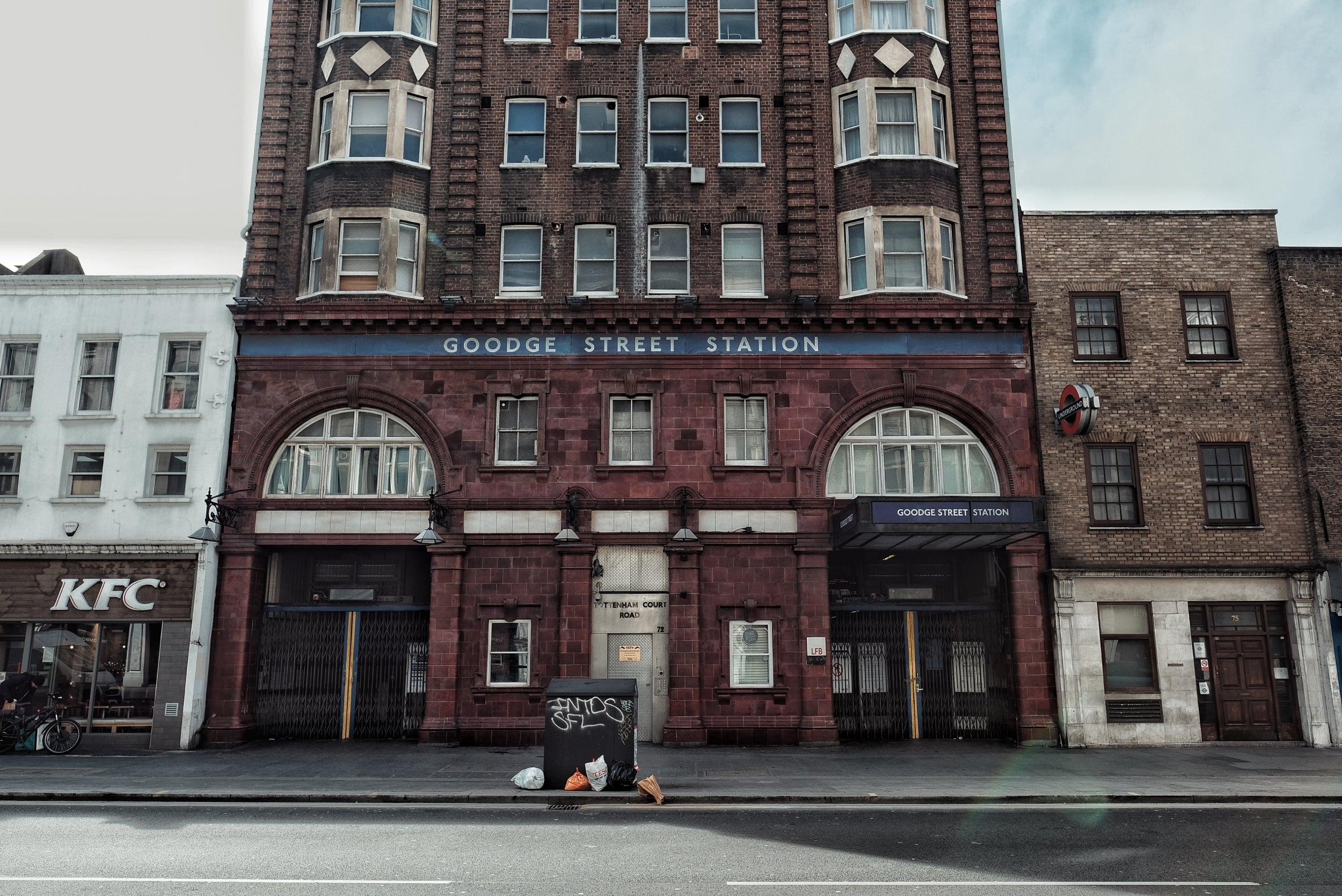
2/29
Goodge Street Station is one of the many stations closed to help reduce the spread
Angela Christofilou
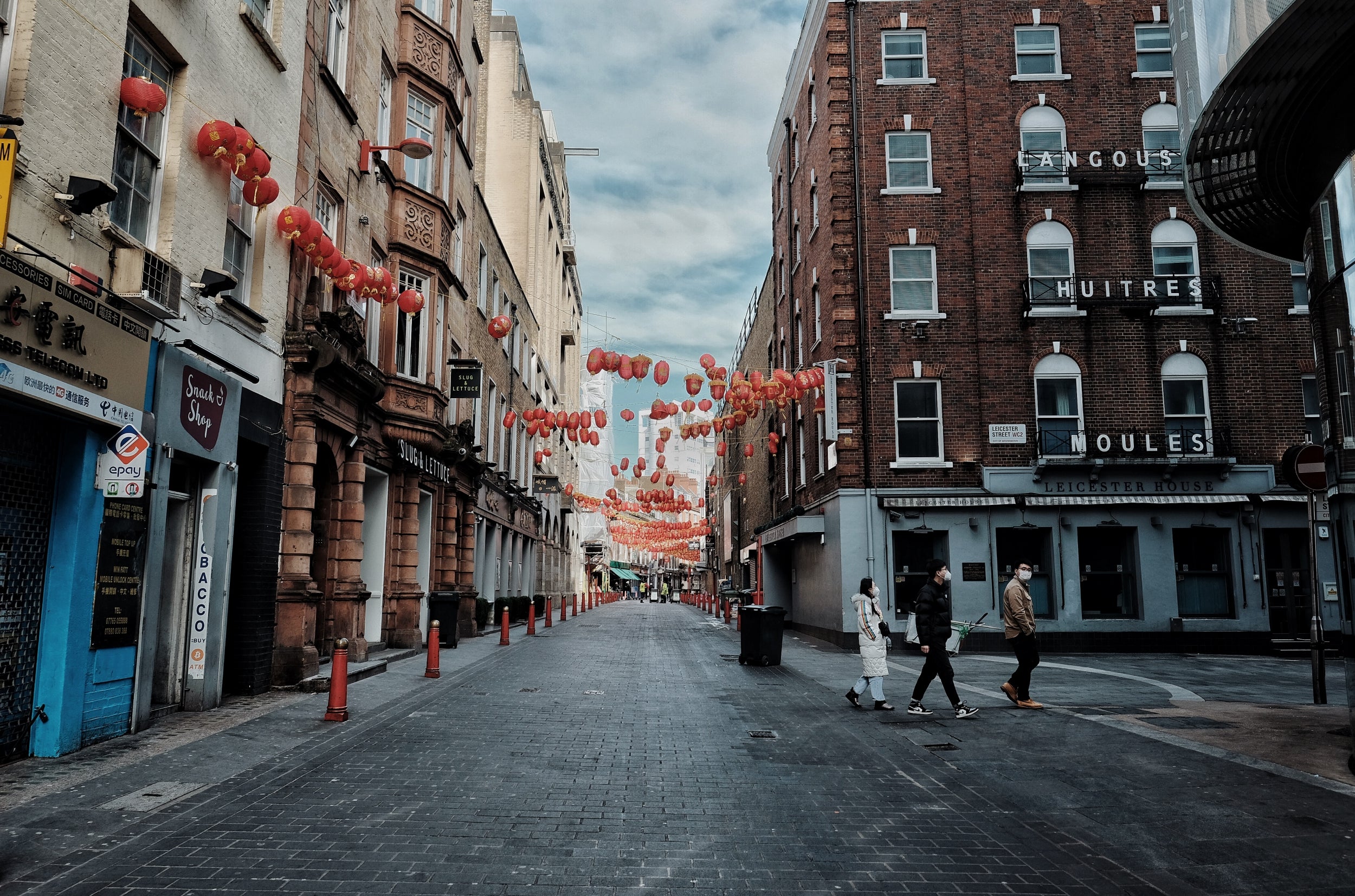
3/29
An empty street in the heart of Chinatown
Angela Christofilou
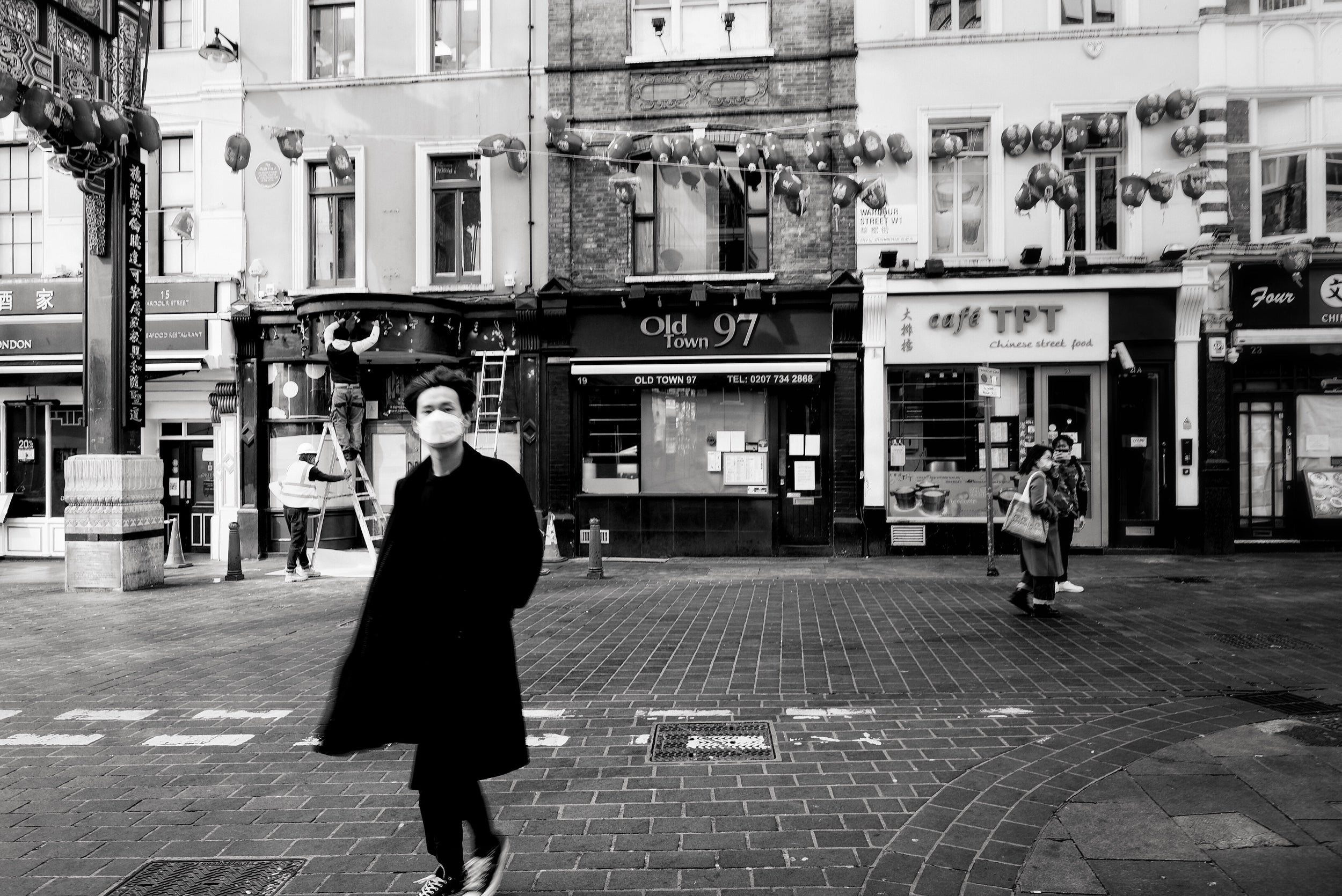
4/29
People in masks in Chinatown a day after the lockdown
Angela Christofilou
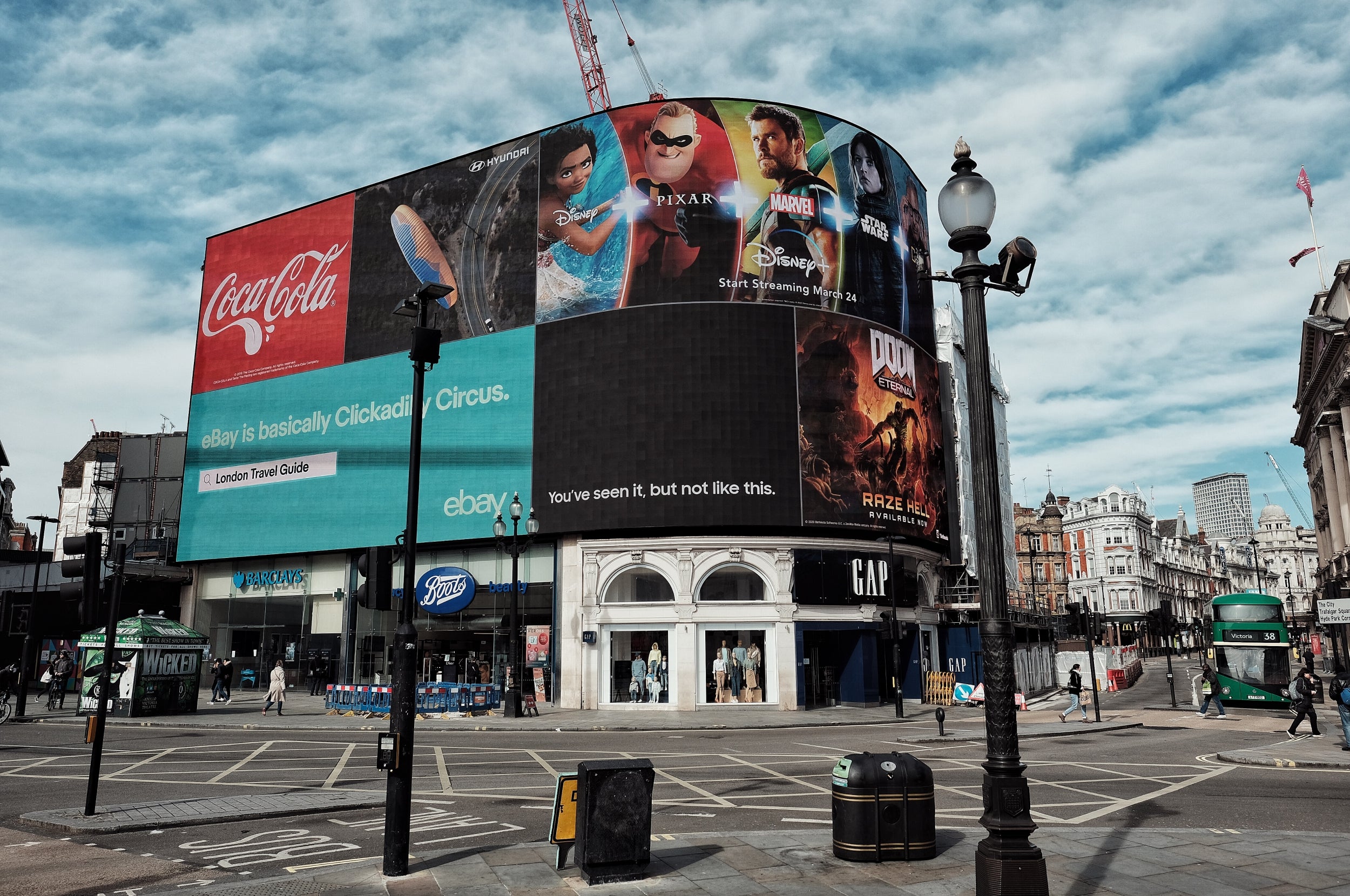
5/29
A near-empty Piccadilly Circus during the first week of lockdown
Angela Christofilou
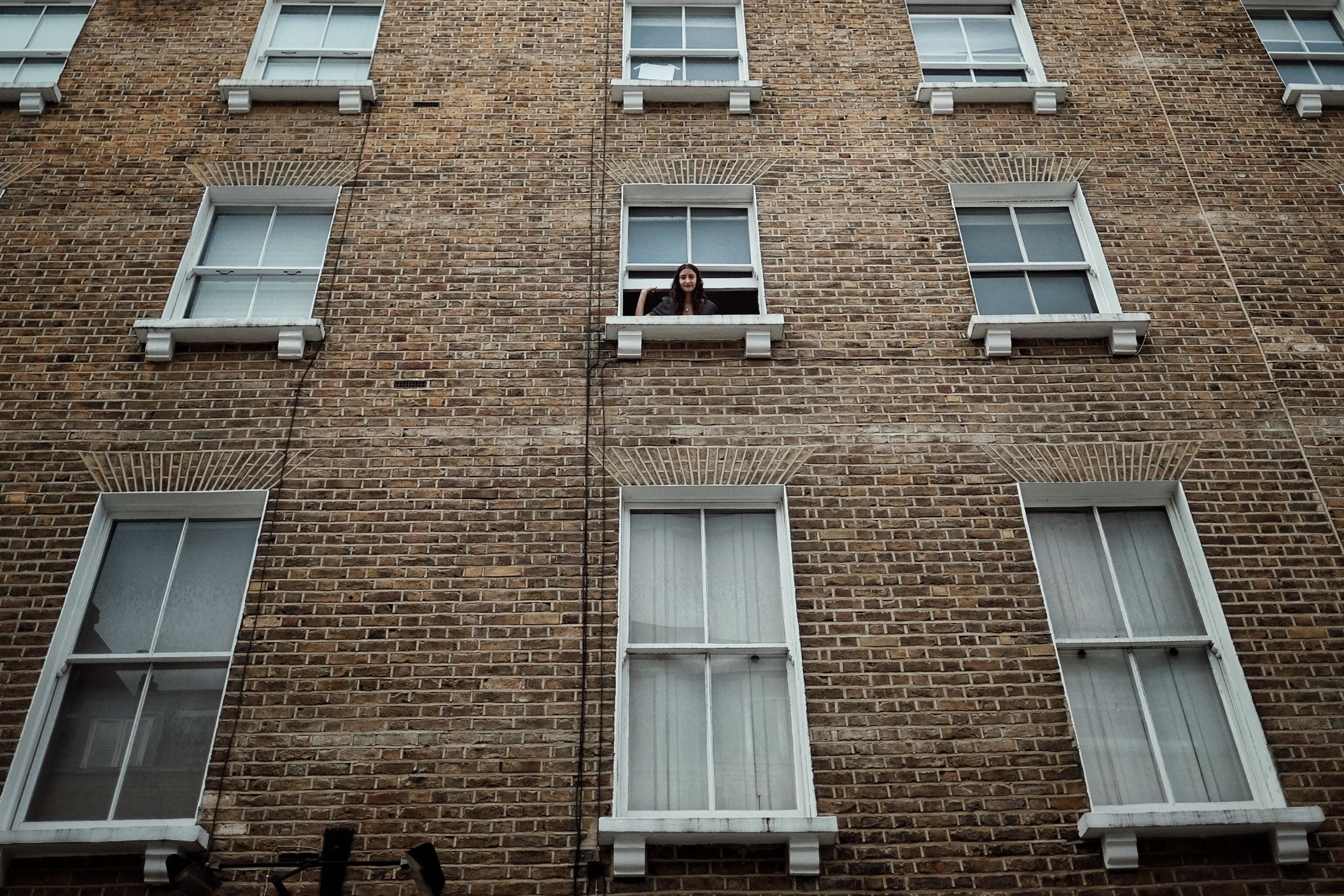
6/29
Sonja, my neighbour, who I photographed while taking a short walk. It was nice to briefly chat even from a distance
Angela Christofilou
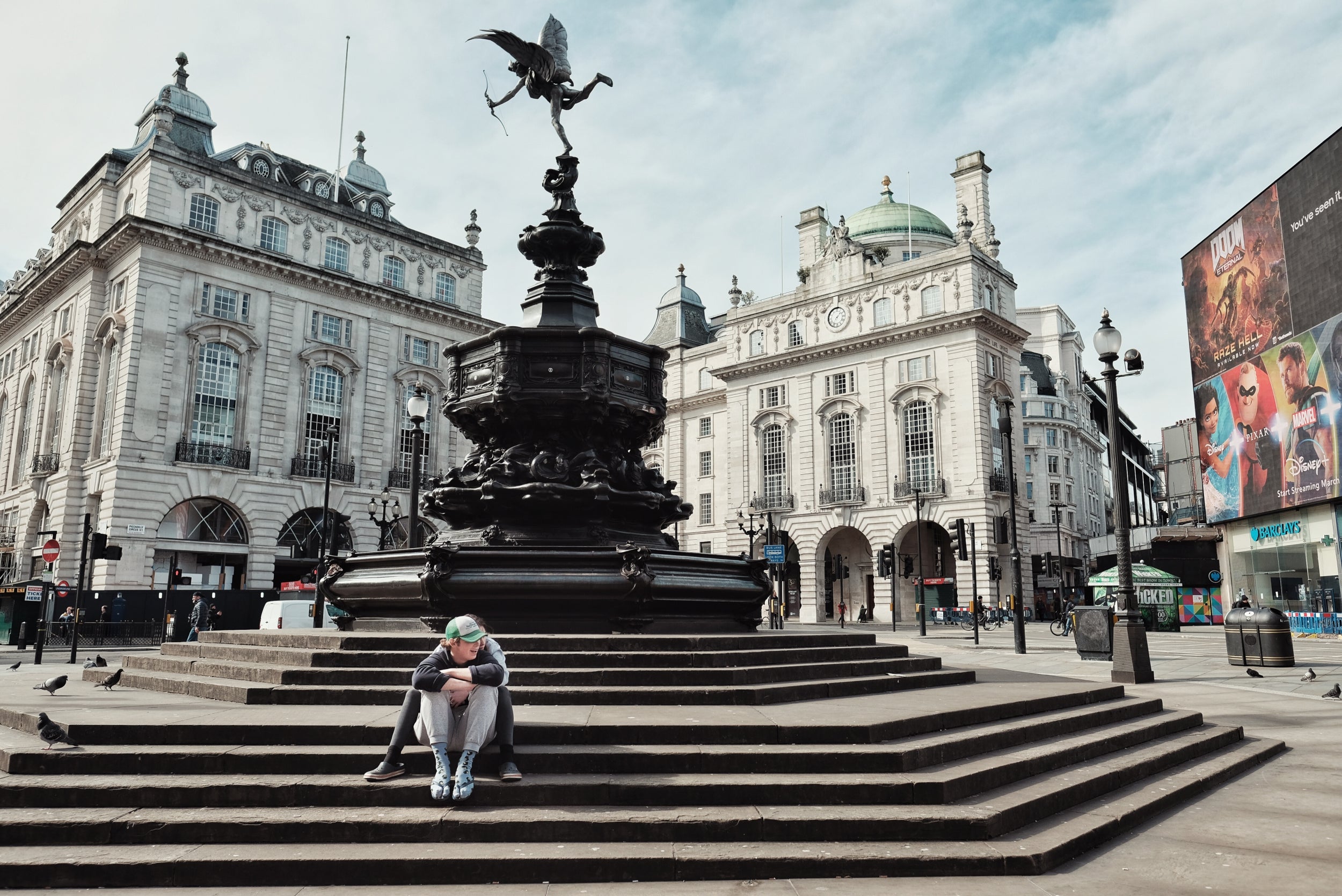
7/29
A couple sit on the empty steps of the statue Eros in Piccadilly Circus
Angela Christofilou
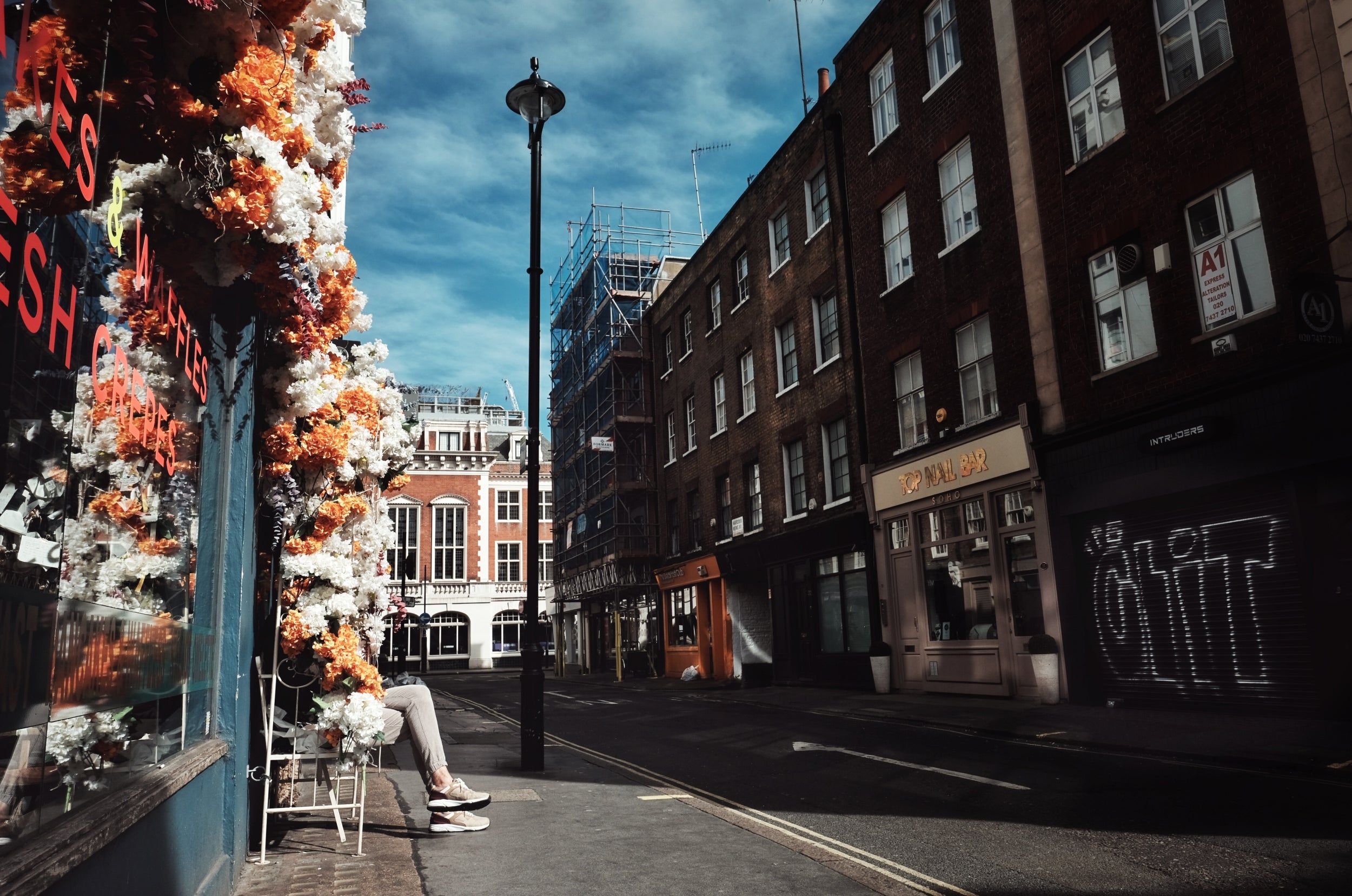
8/29
Making sure I stay two-meters apart – D’Arblay Street, Soho
Angela Christofilou
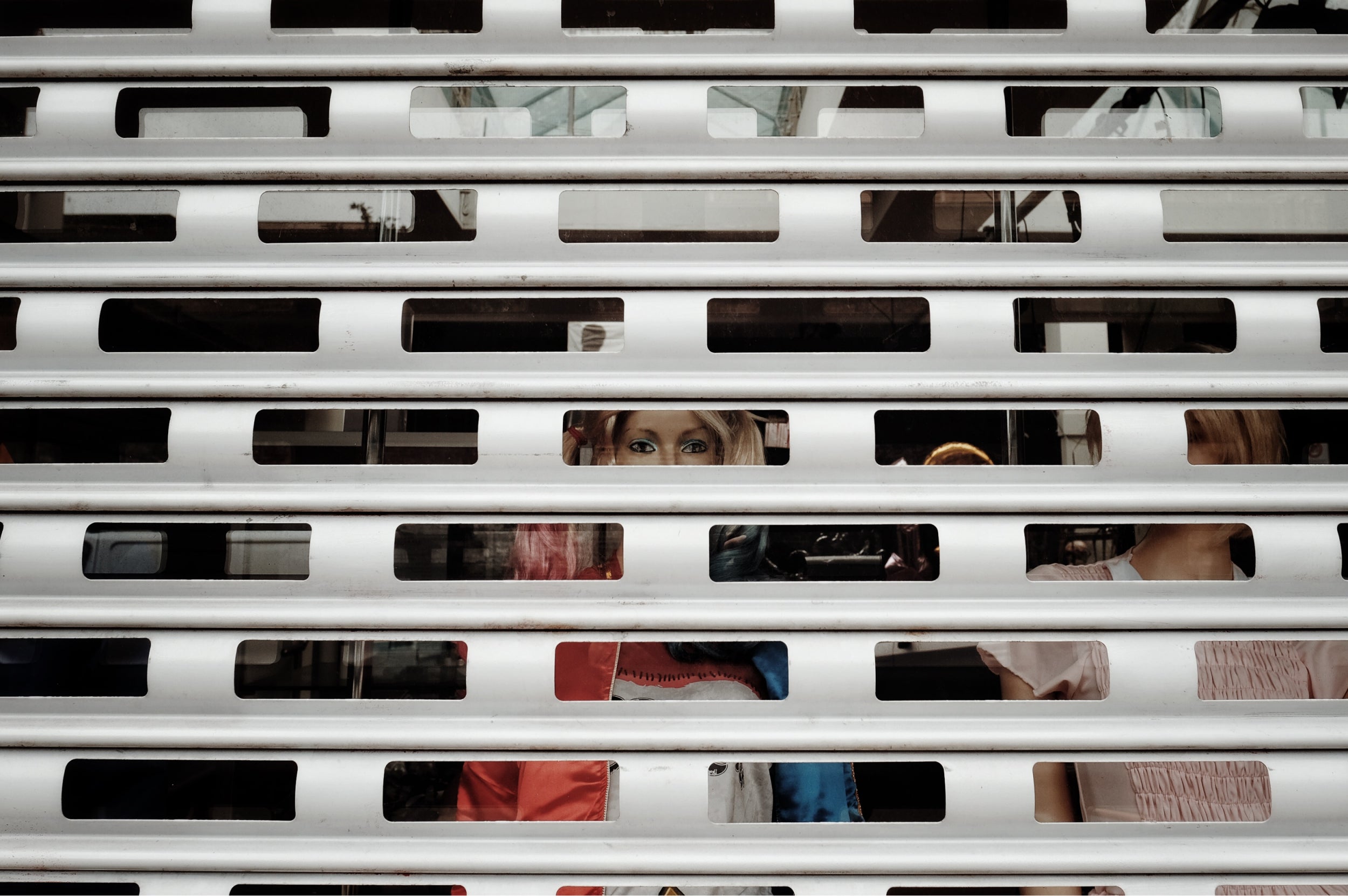
9/29
A mannequin behind a shop window. UK stores have closed until further notice
Angela Christofilou
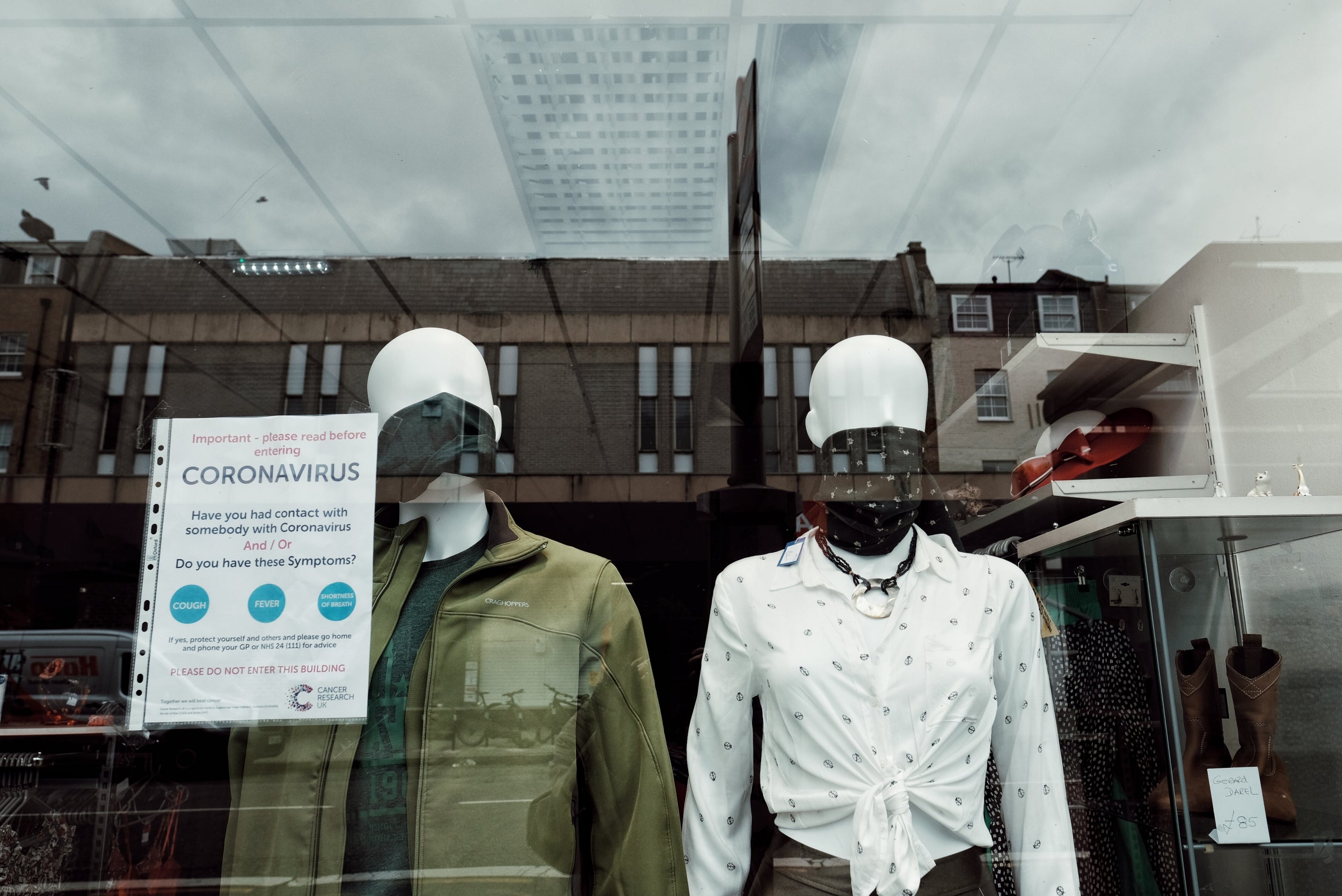
10/29
A notice displayed on a shop window in Camden
Angela Christofilou
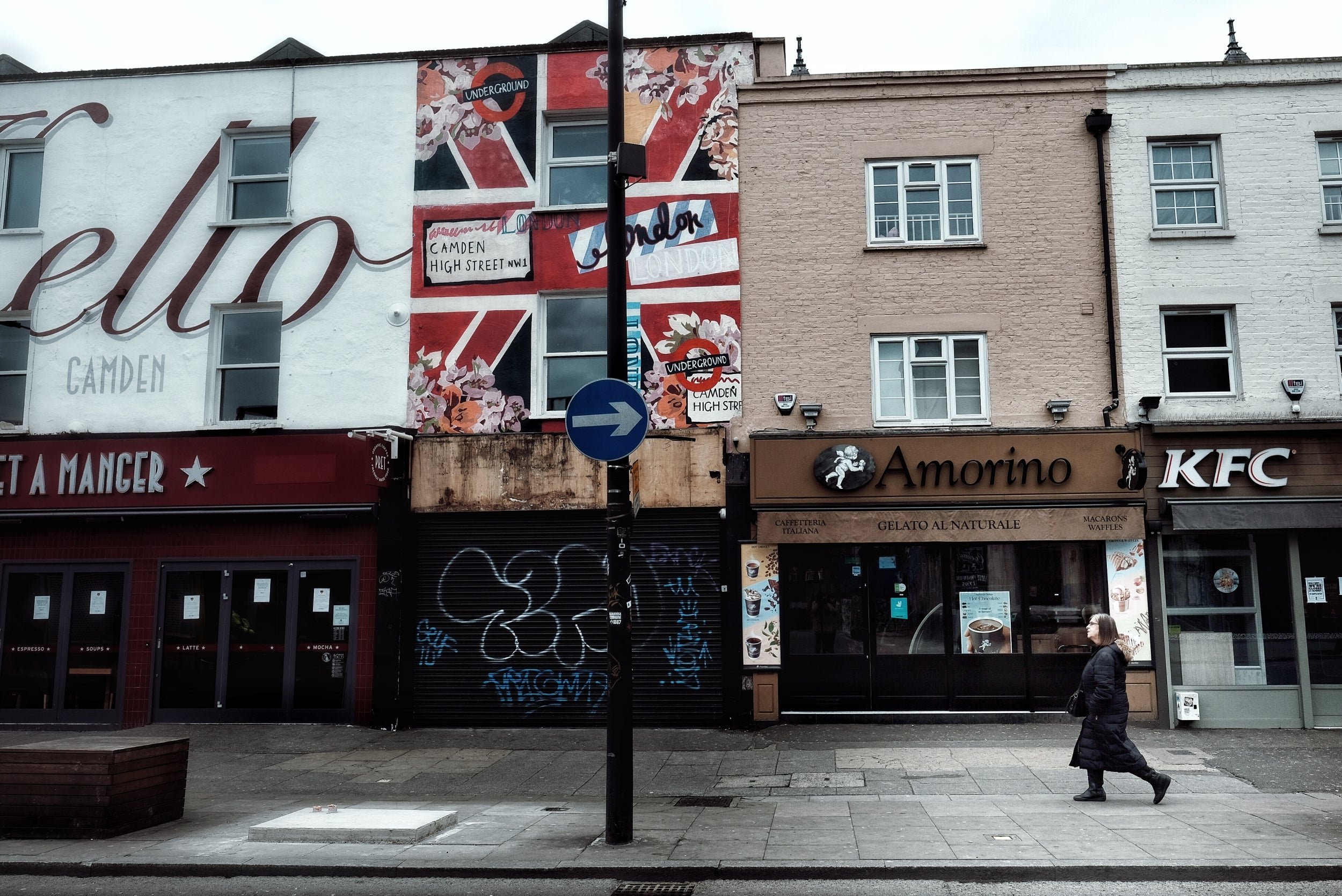
11/29
As part of the lockdown, all non-essential shops have been ordered to close.Image from Camden High Street
Angela Christofilou
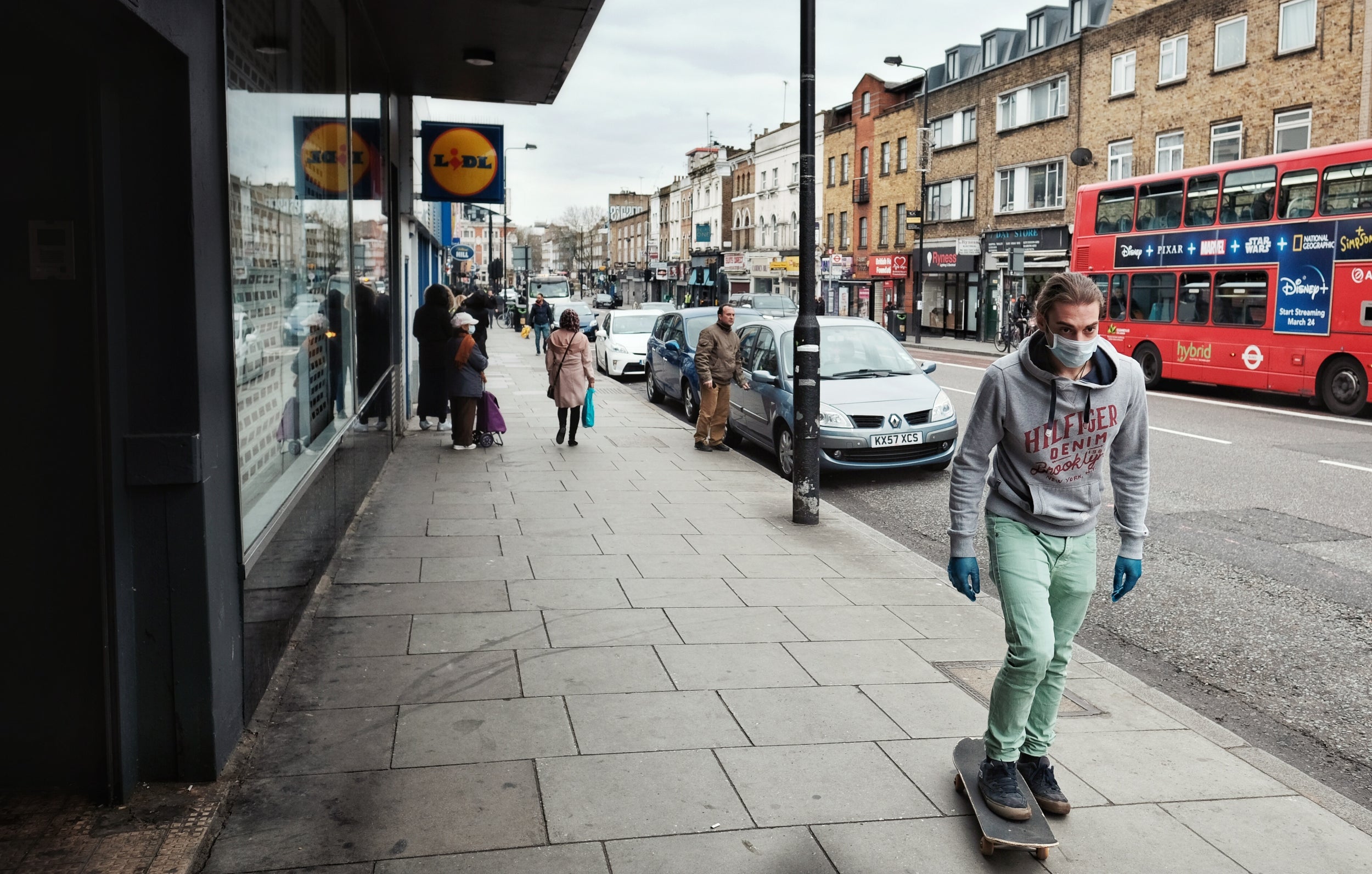
12/29
A skateboarder wearing a mask utilises his exercise allowance in the Camden area
Angela Christofilou
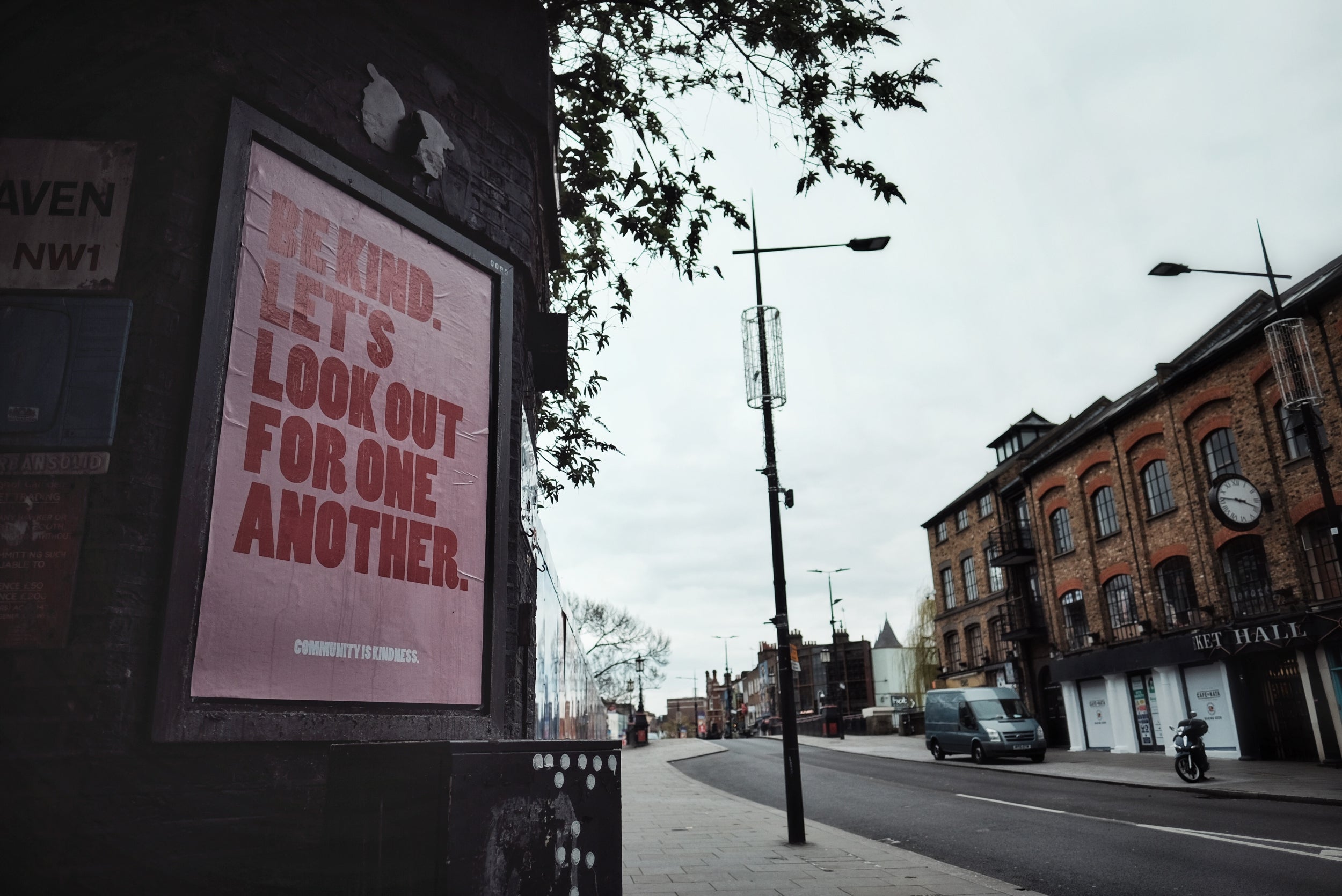
13/29
Communities have been coming together in a time of need
Angela Christofilou
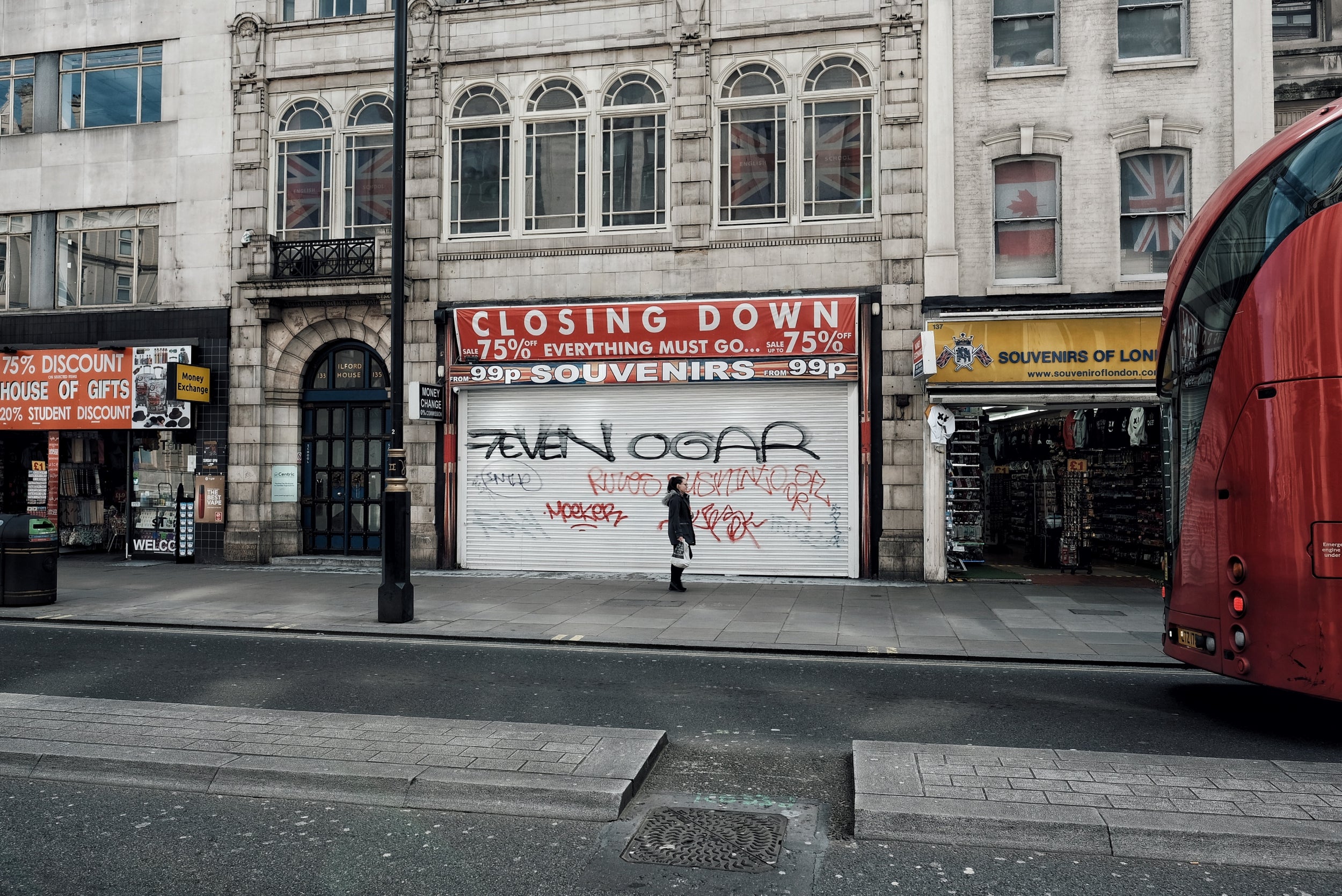
14/29
A woman stands alone in a deserted Oxford Street. Up until a few weeks ago, on average, half a million people visited the street per day
Angela Christofilou
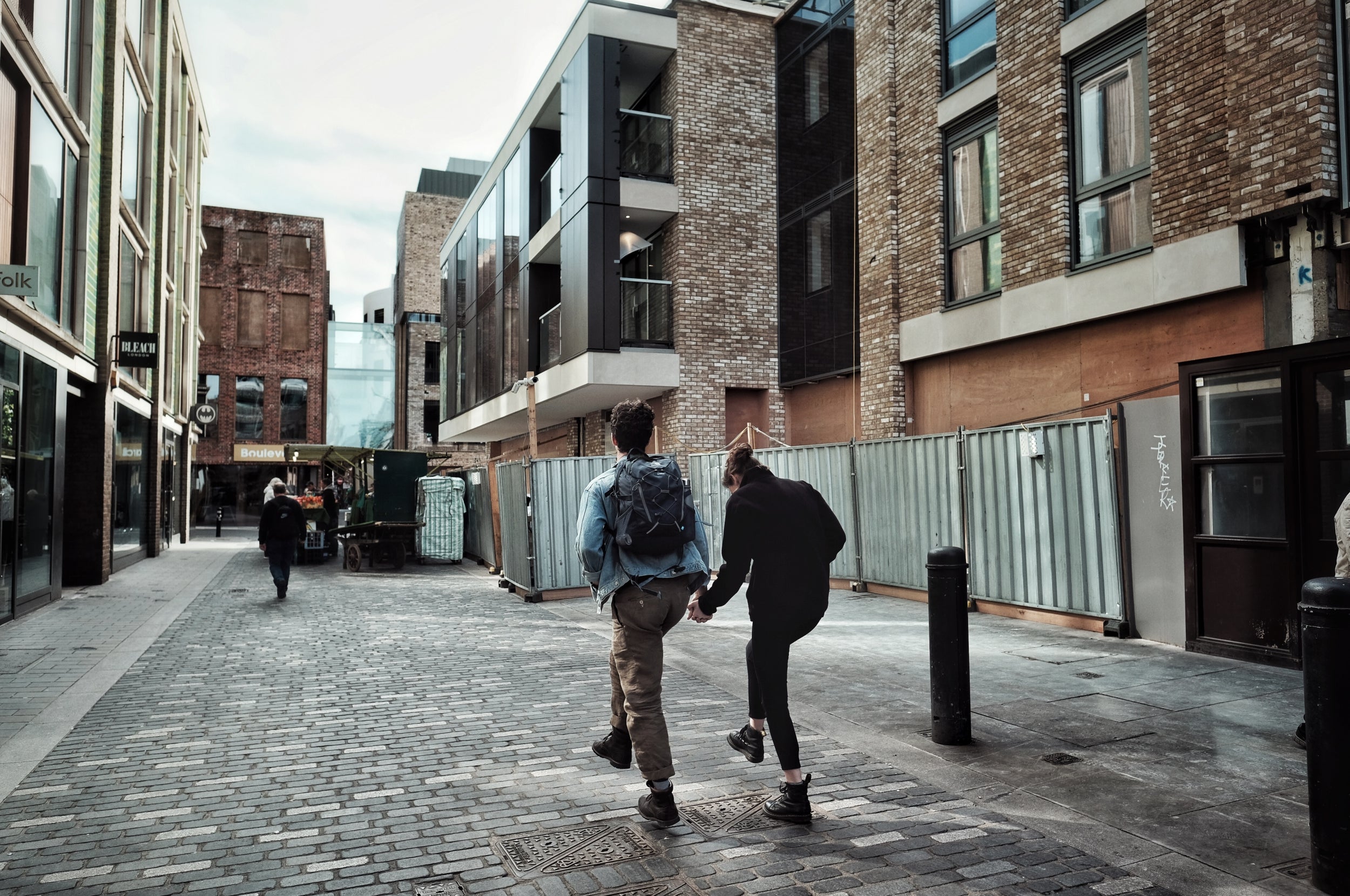
15/29
A couple walk hand in hand down a street in Soho, a day before the stricter lockdown was announced
Angela Christofilou
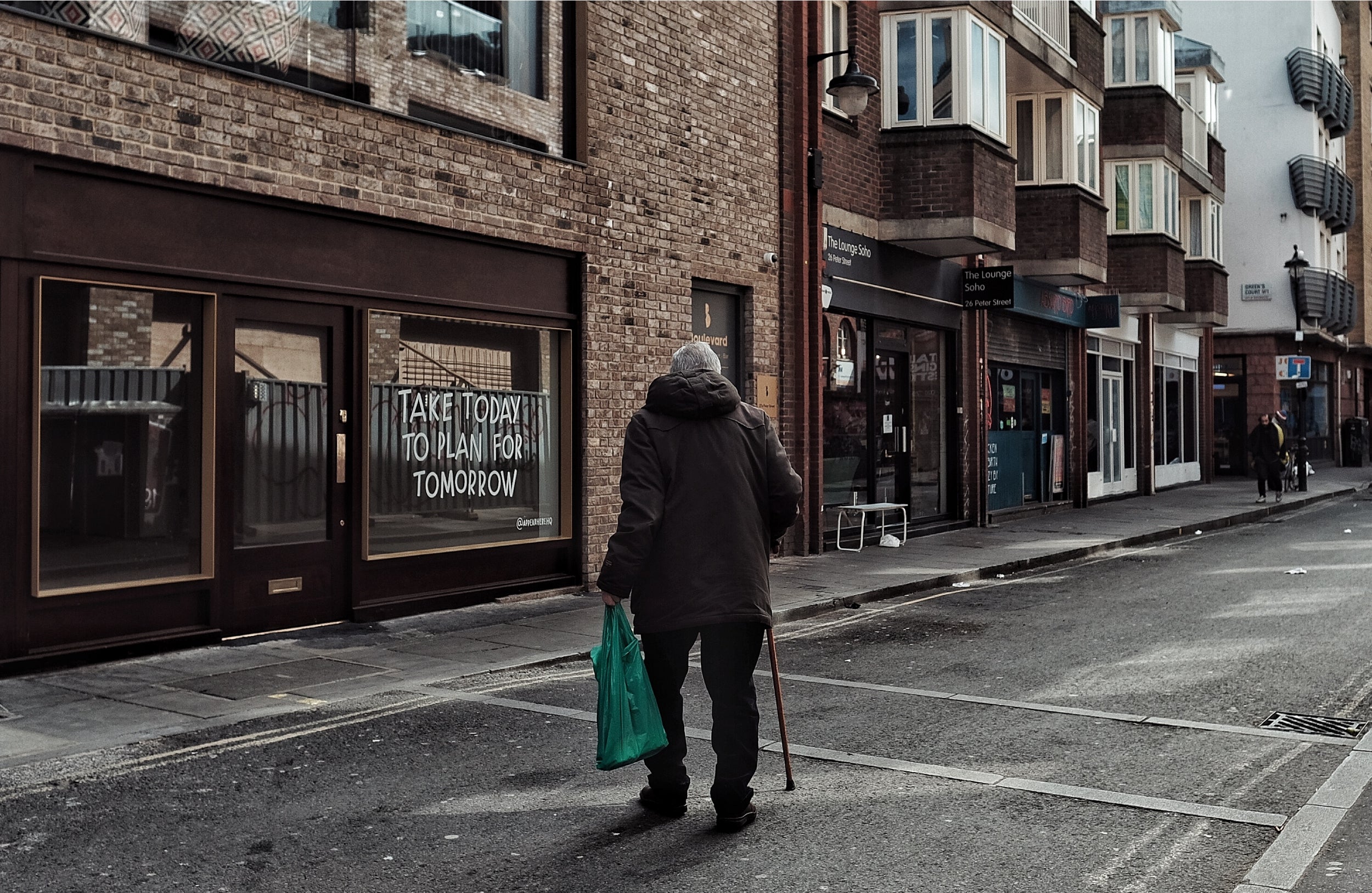
16/29
During the first week of March, shoppers focused on stockpiling necessities ahead of a countrywide lockdown
Angela Christofilou
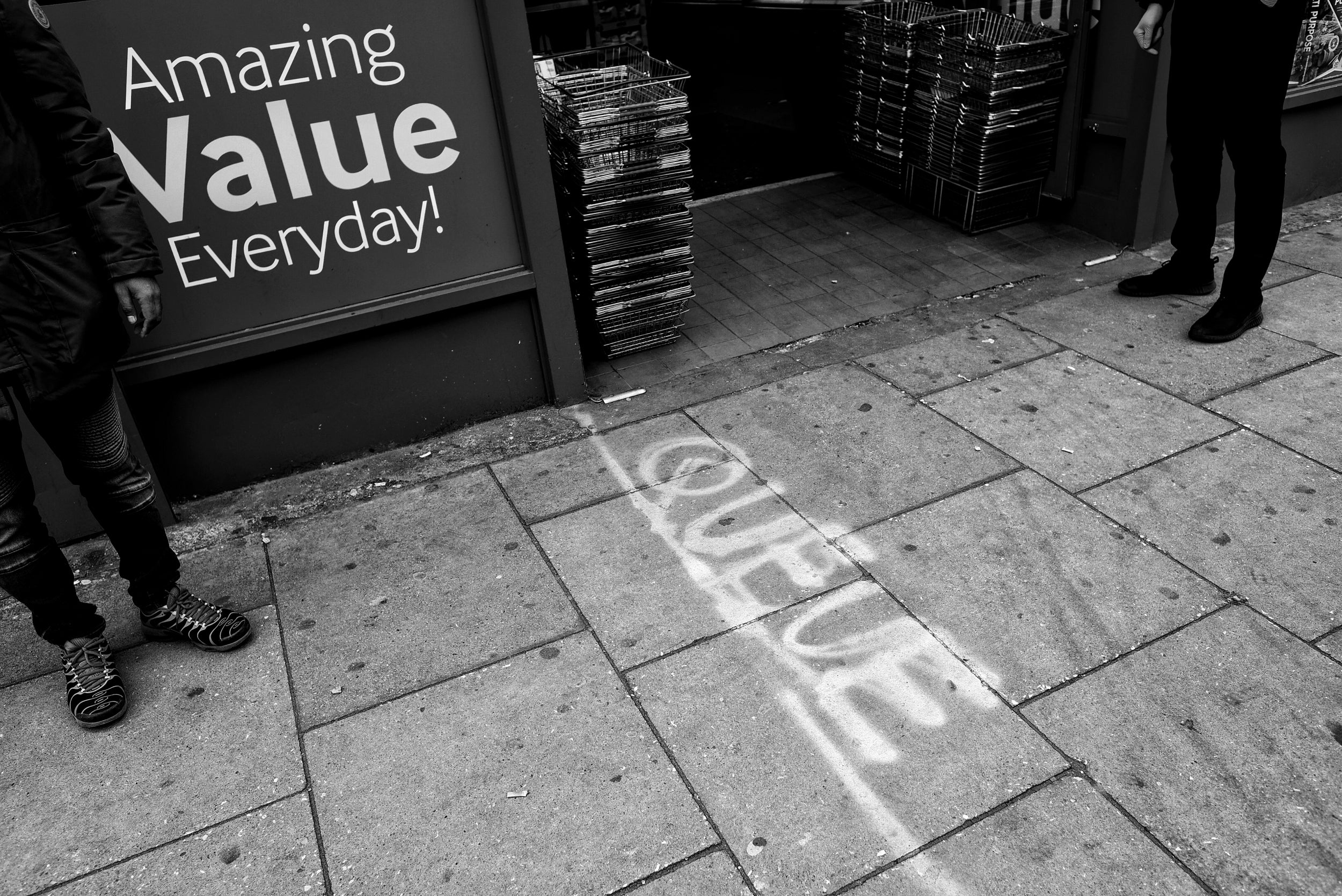
17/29
Many supermarkers are operating a queuing system to make sure only a limited amount of customers are allowed in at anyone time
Angela Christofilou
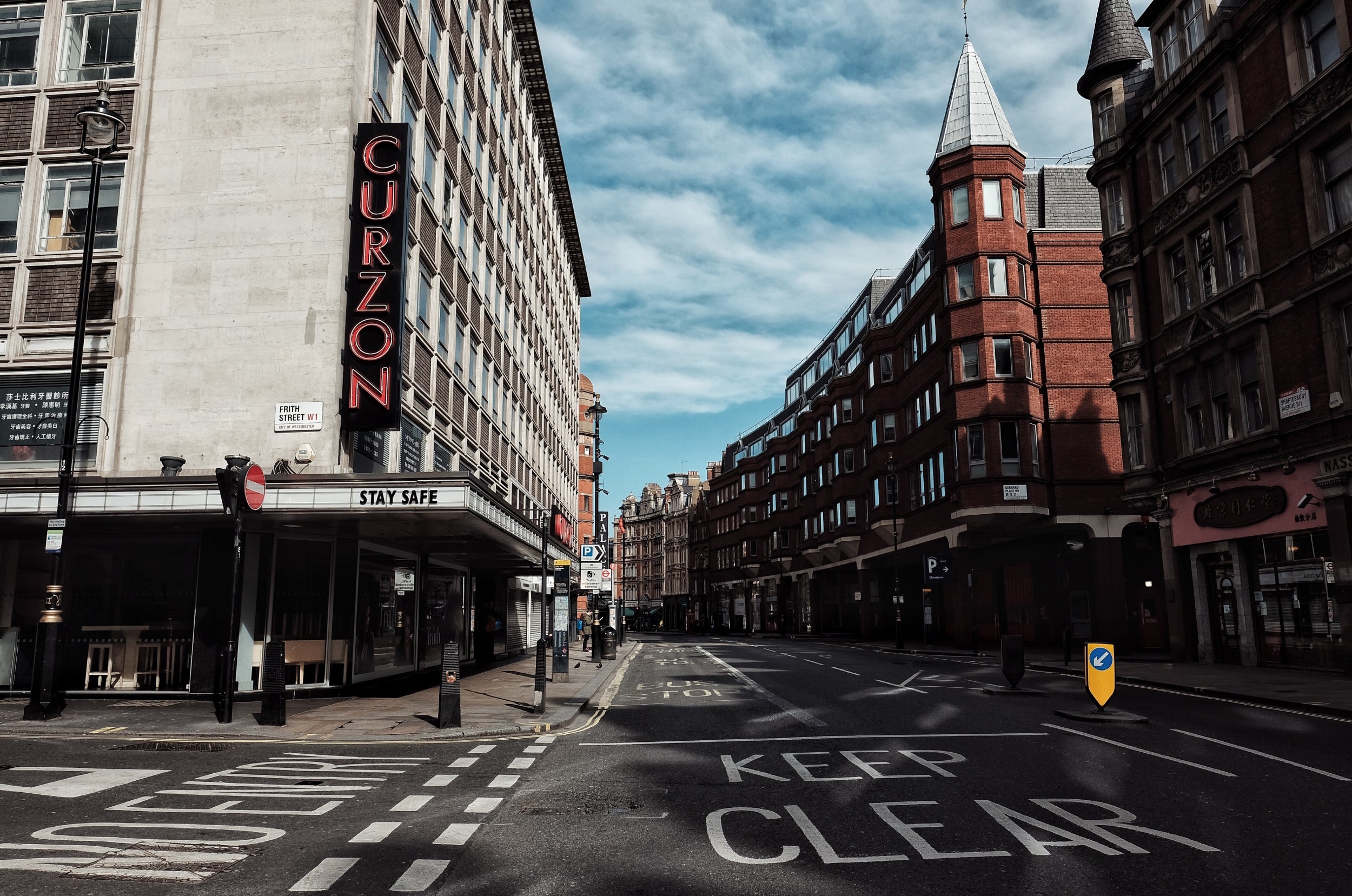
18/29
‘Stay Safe’ – Curzon cinemas are temporarily closed under the new measures
Angela Christofilou
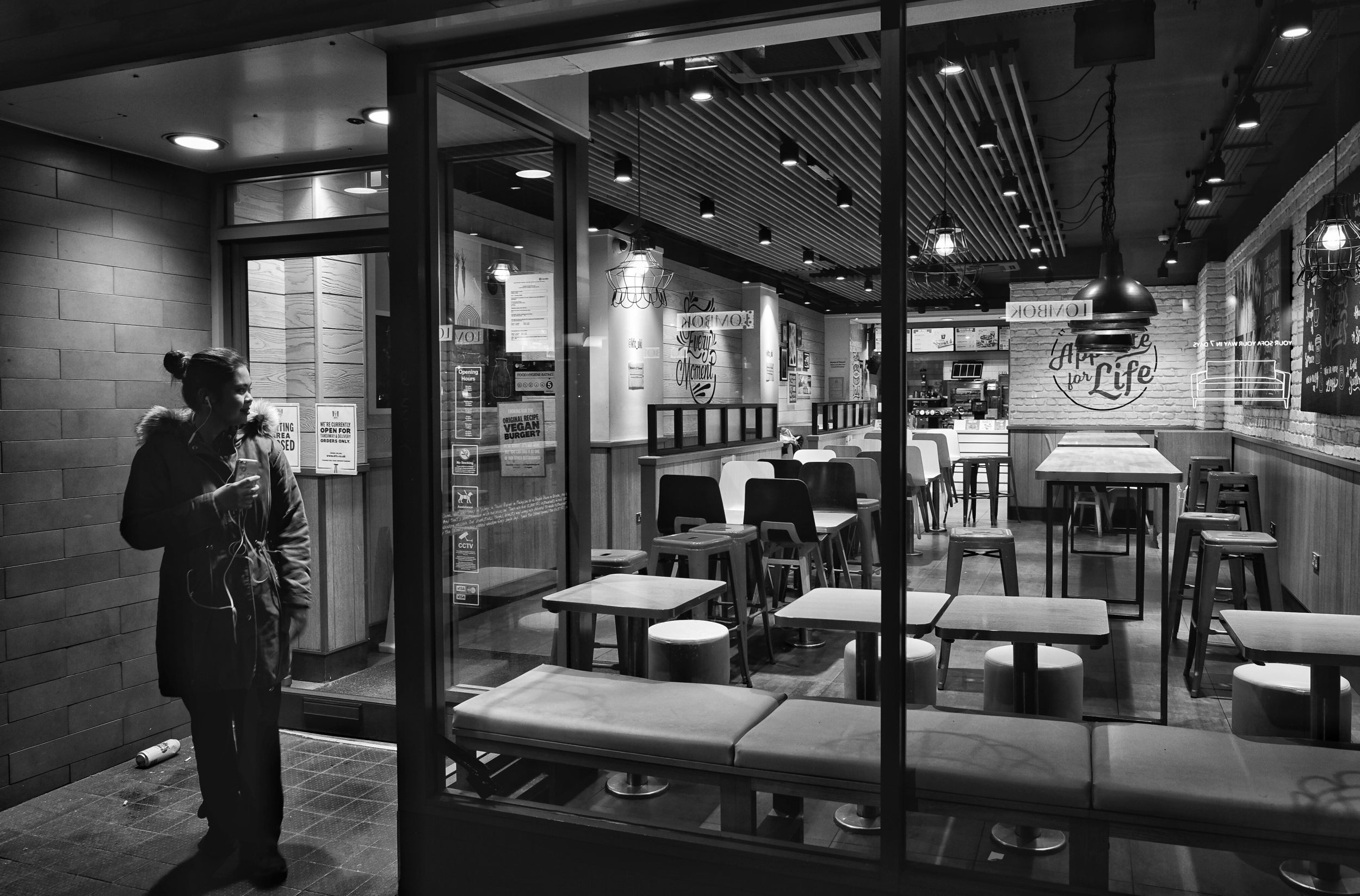
19/29
Pubs, restaurants and bars were ordered to shut as part of the lockdown
Angela Christofilou
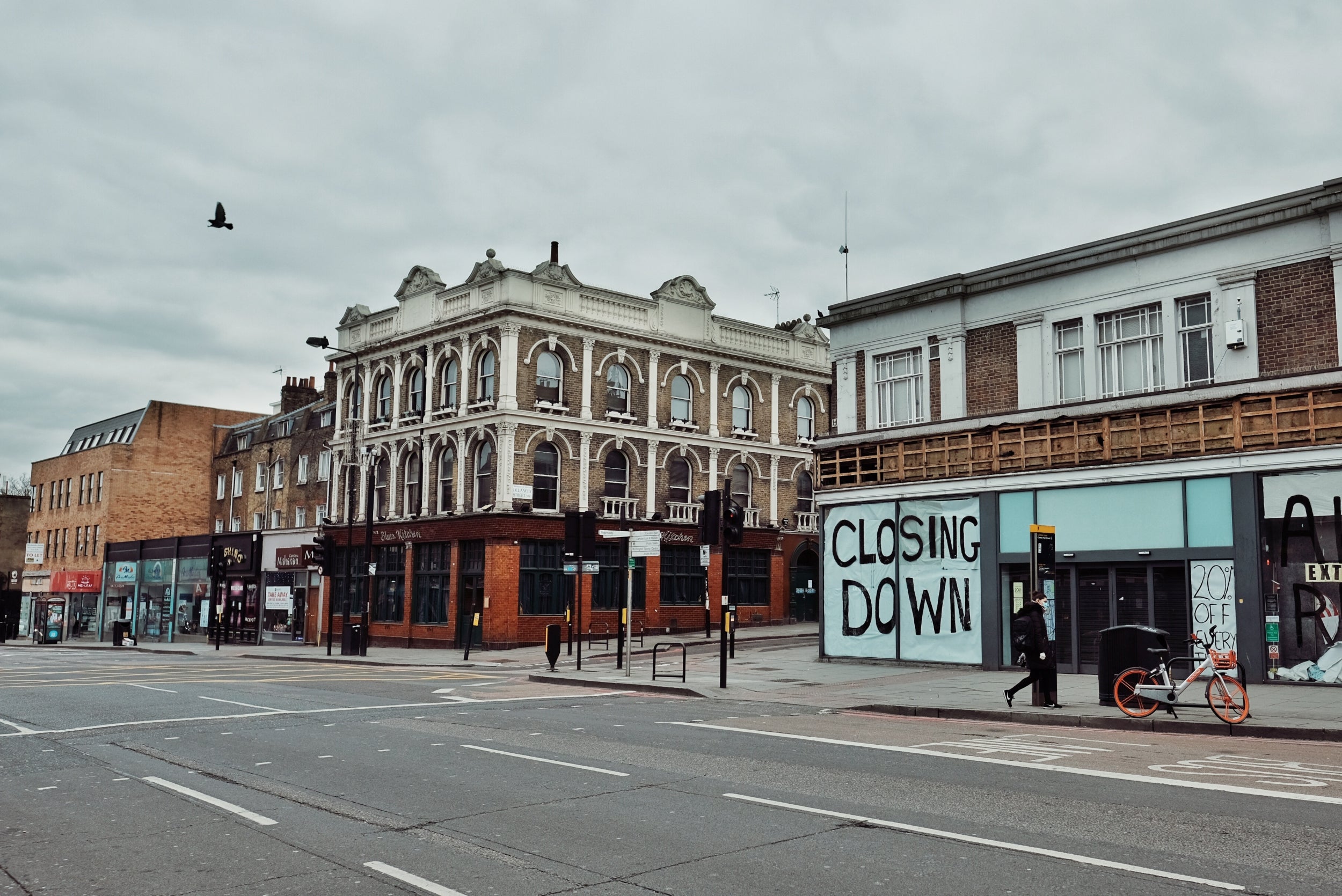
20/29 Camden High Street
There are fears that coronavirus could lead to permanent closure of struggling shops
Angela Christofilou
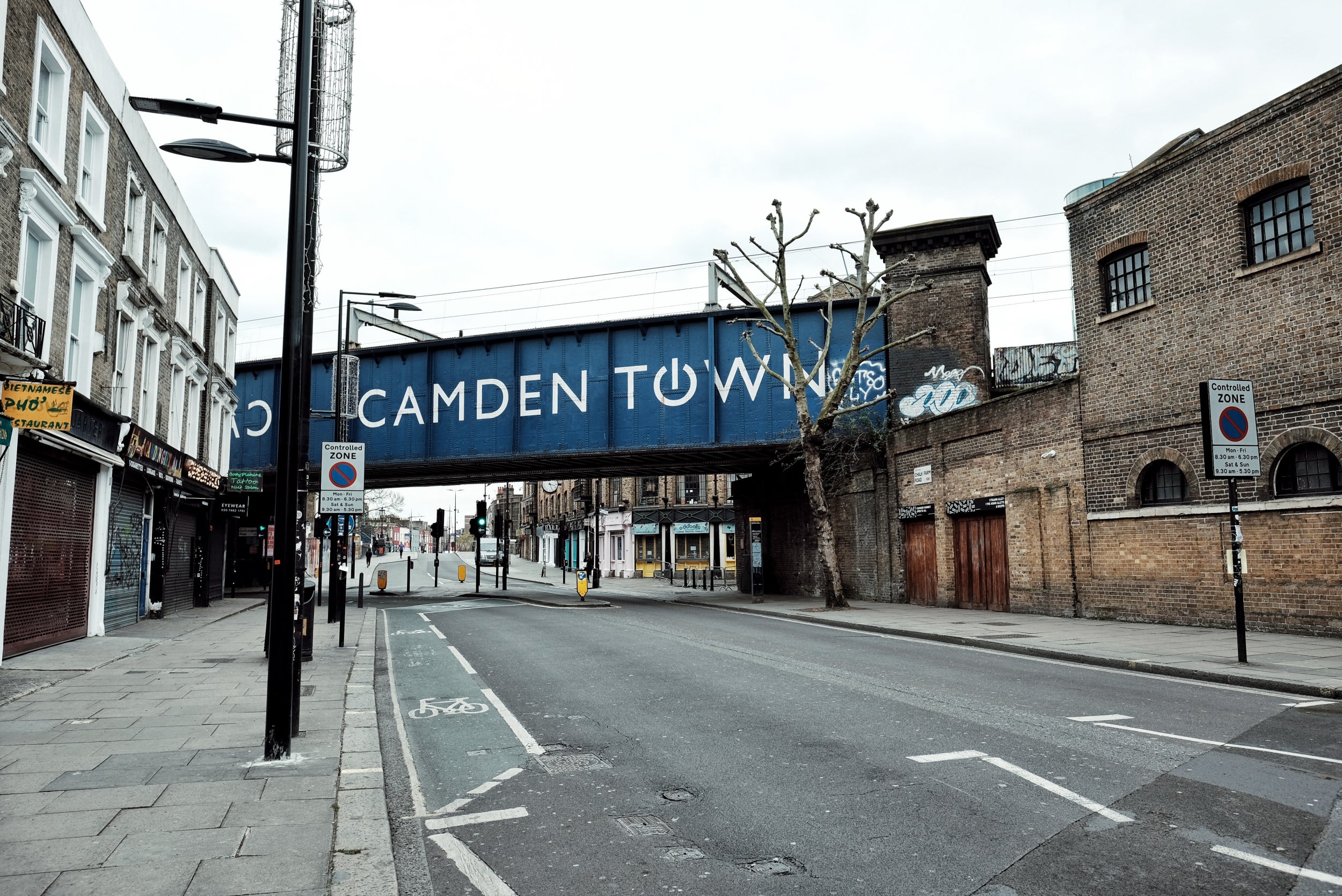
21/29
Camden Town is eerily silent on a normal working day
Angela Christofilou
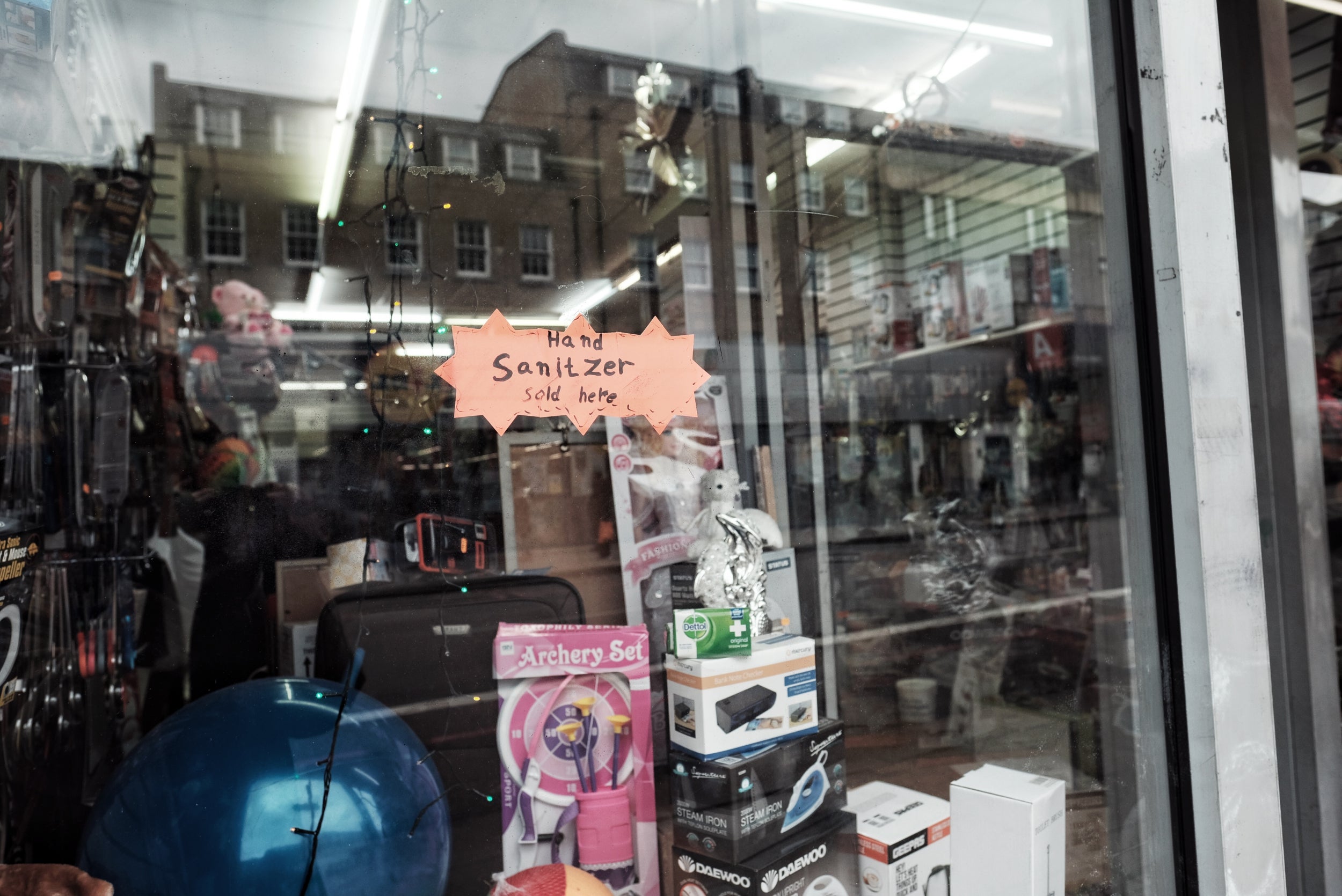
22/29
Shops and supermarkets ran out of hand sanitisers in the first week of the lockdown. As we approach the end of the second week most shops now have started to stock up
Angela Christofilou
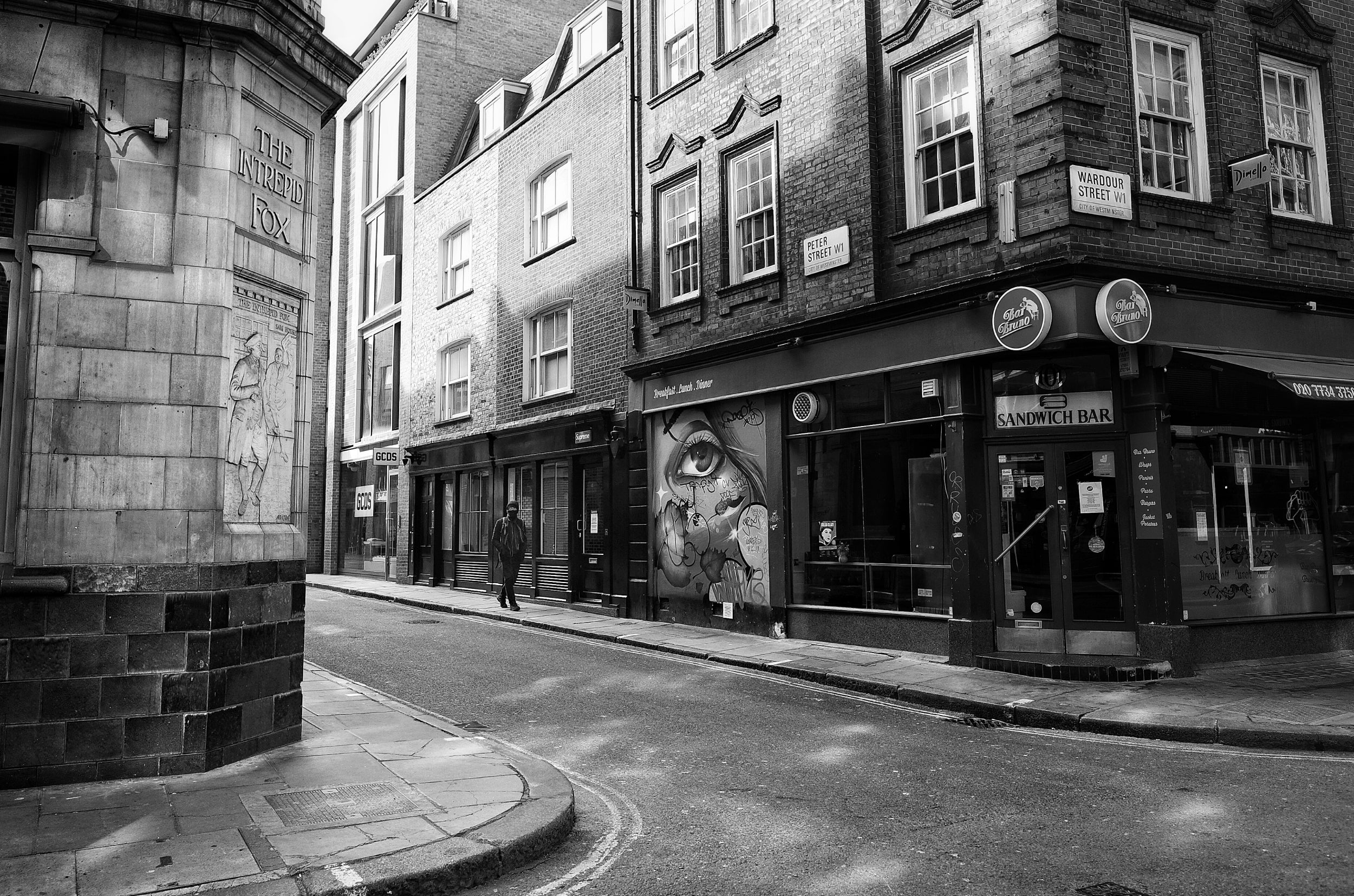
23/29
Empty streets around Soho
Angela Christofilou
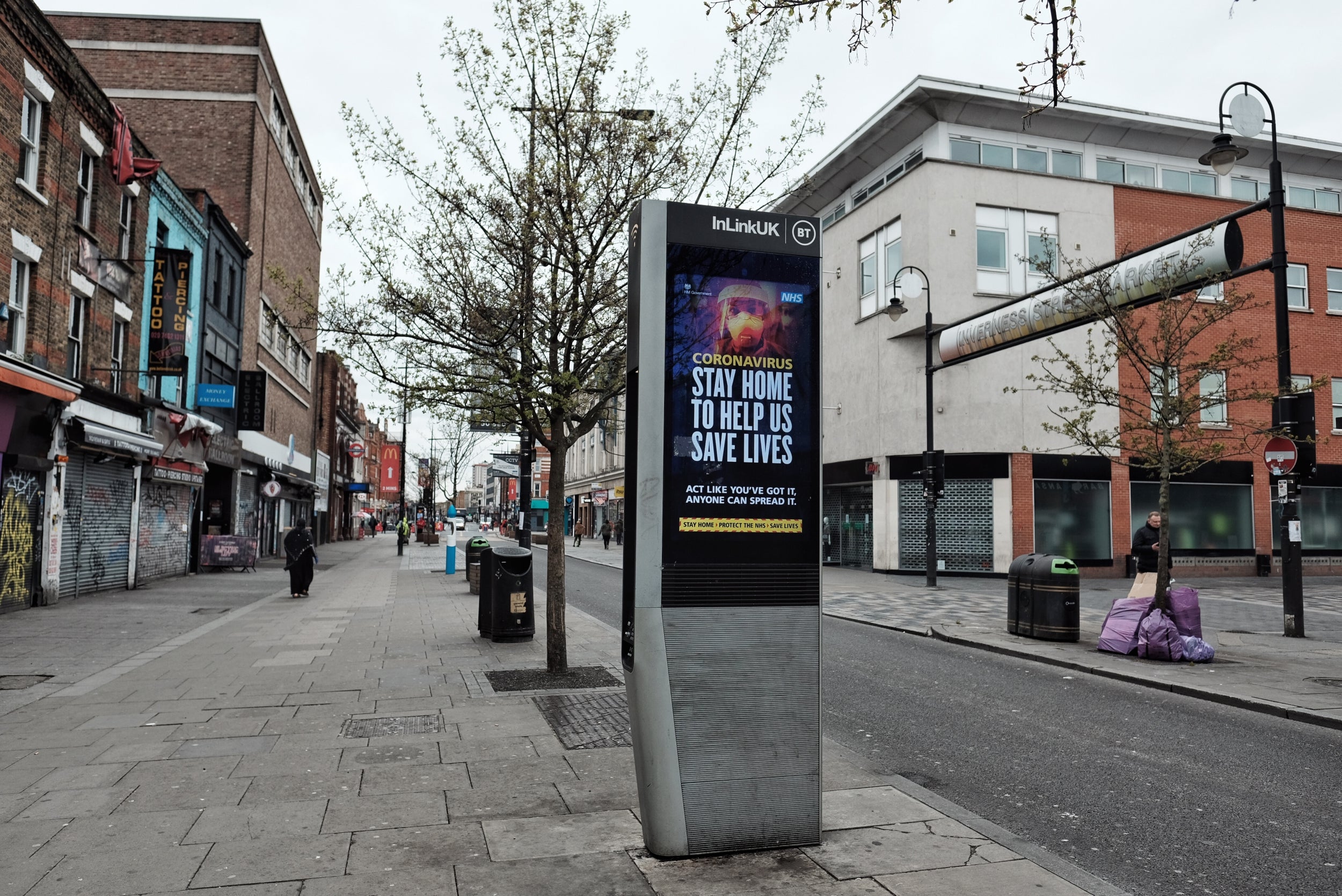
24/29
A noticeboard on Camden High Street urges the public to stay at home
Angela Christofilou
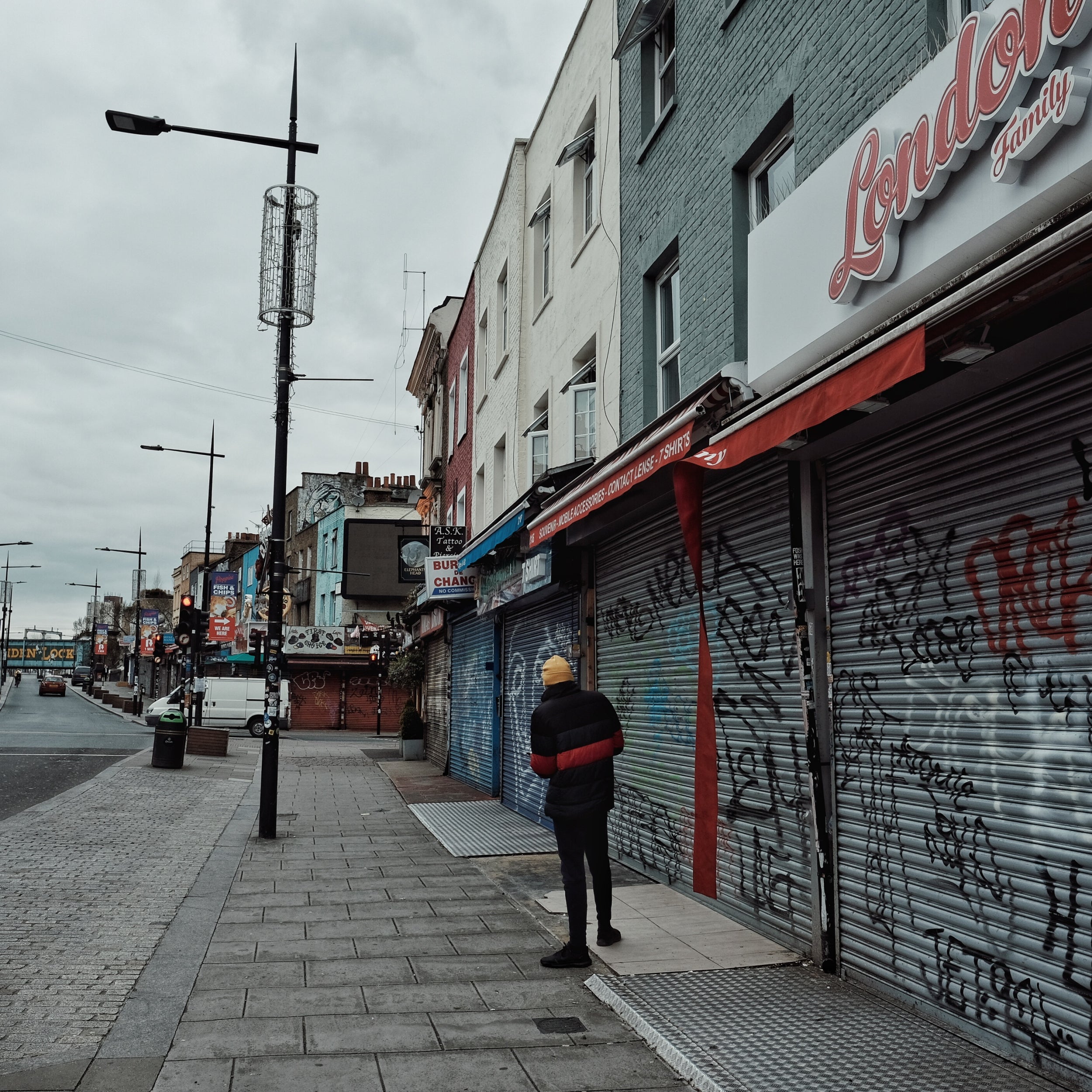
25/29
Camden High Street, one of London’s busiest tourist streets turns quiet
Angela Christofilou
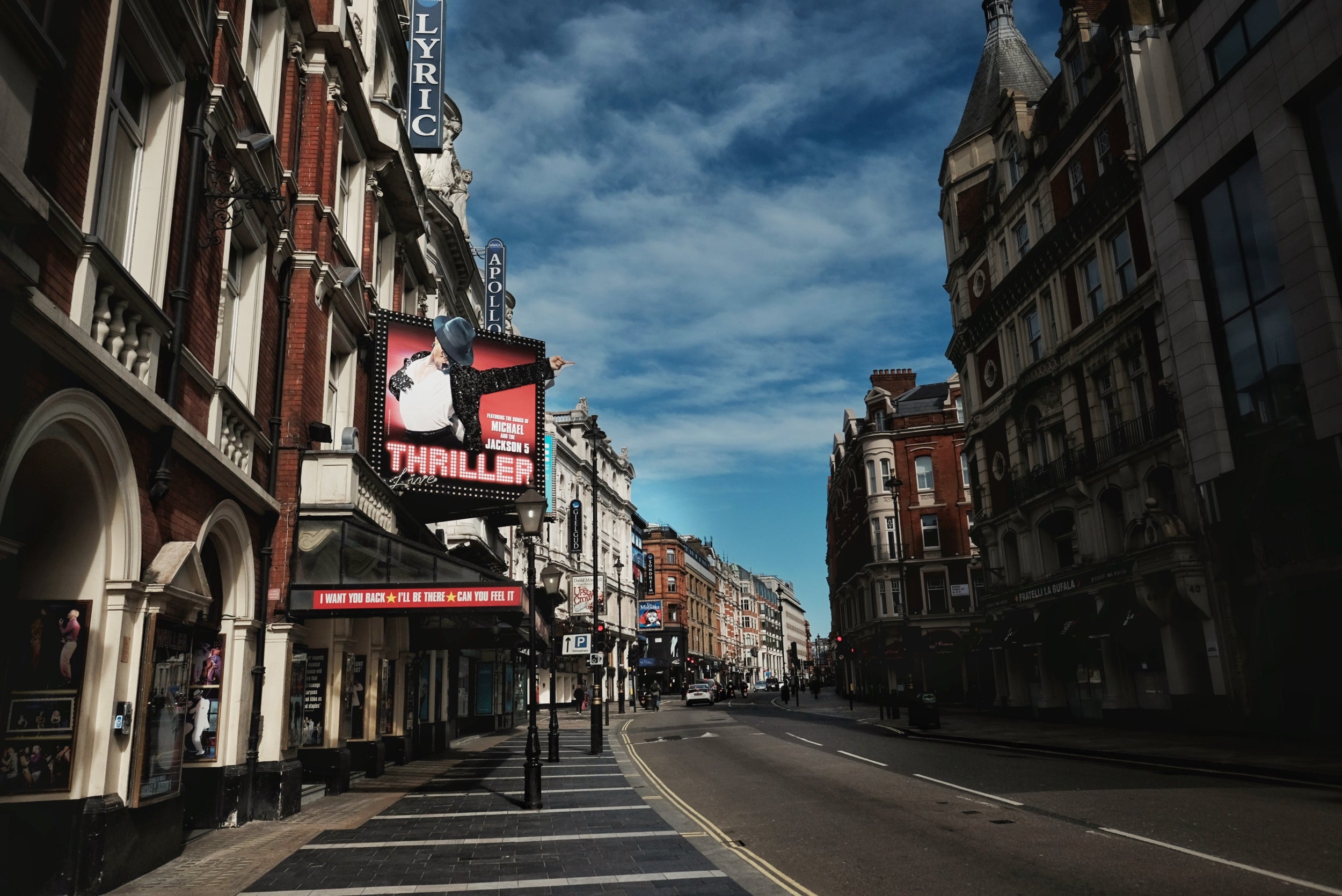
26/29
Thriller Live confirmed its West End run ended in the wake of the coronavirus outbreak
Angela Christofilou
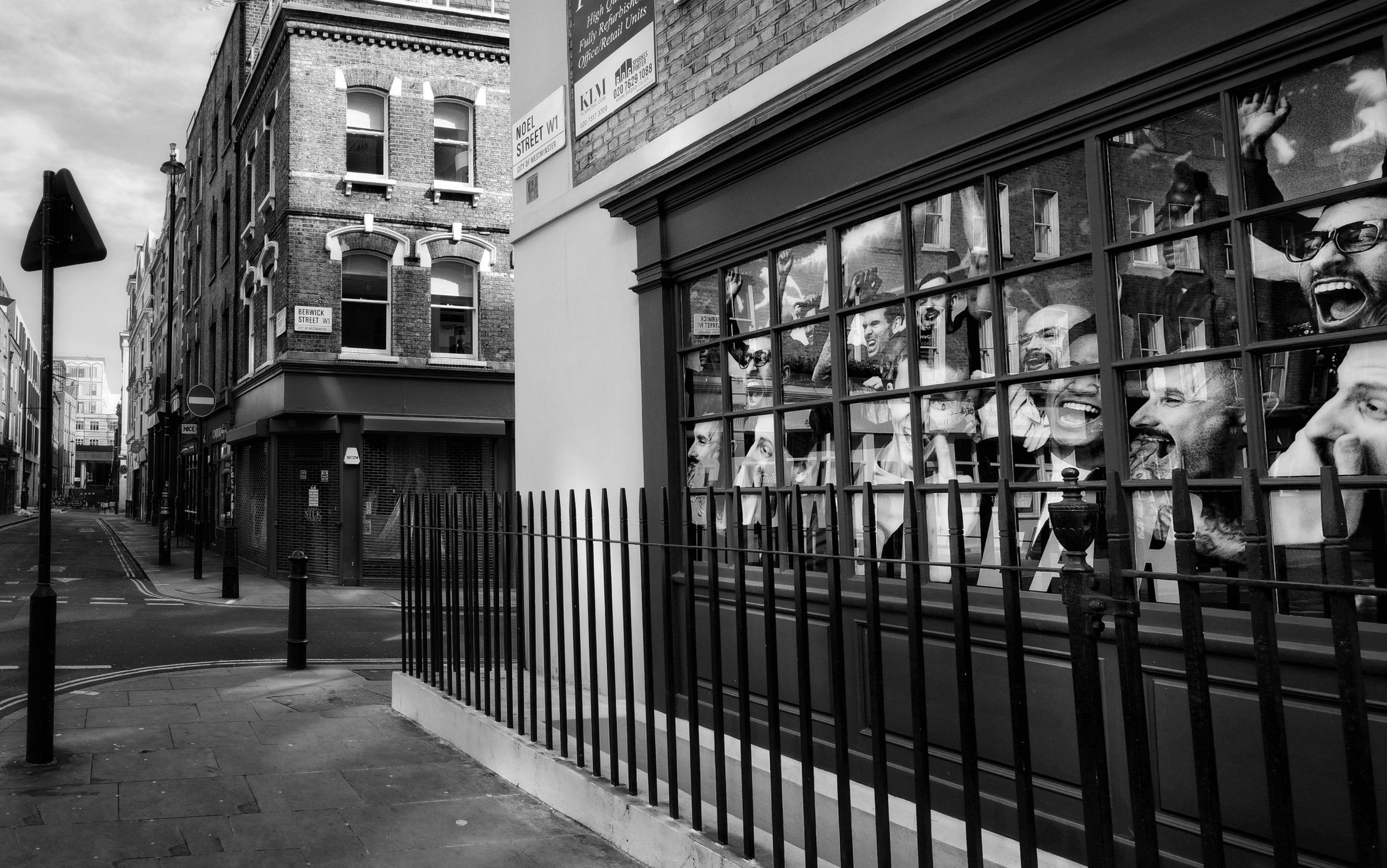
27/29
Empty and eerie Soho streets after stricter rules on social distancing announced
Angela Christofilou
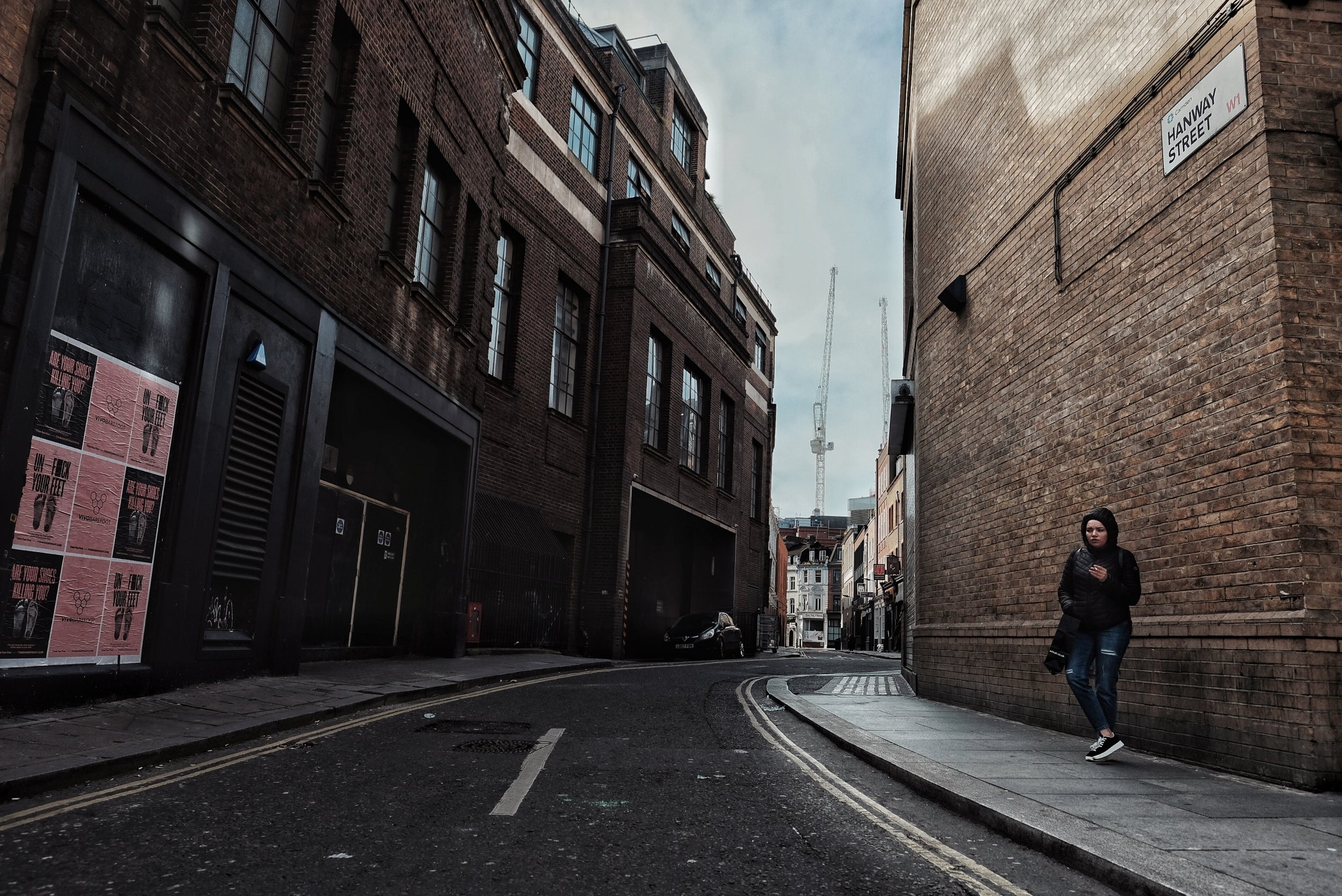
28/29
A woman pauses for a cigarette on Hanway Street, behind Tottenham Court Road
Angela Christofilou
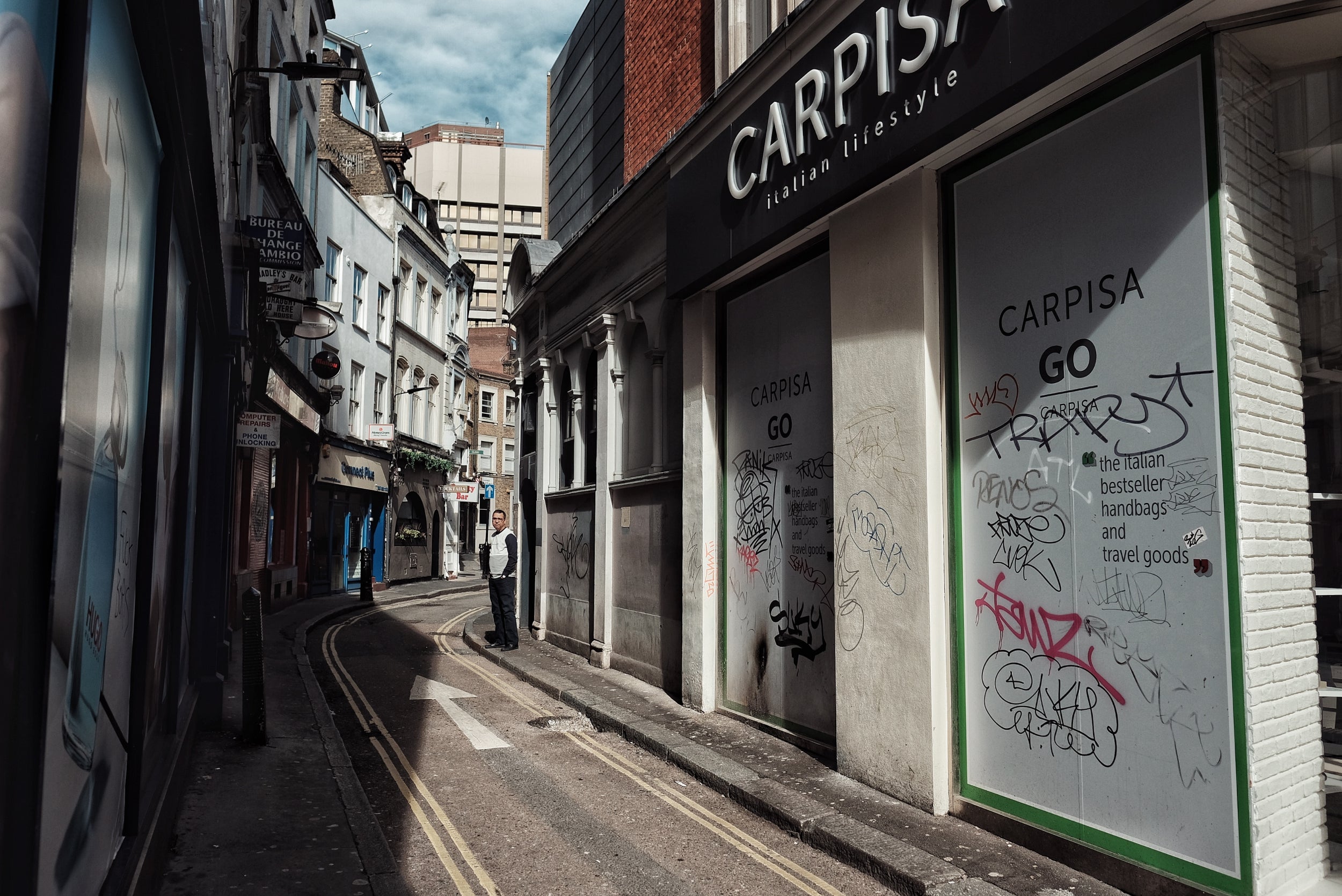
29/29
A man steps outside onto Hanway Street, that sits behind what is usually a bustling retail hub
Angela Christofilou

1/29
A man walks down a deserted Camden High Street
Photos Angela Christofilou

2/29
Goodge Street Station is one of the many stations closed to help reduce the spread
Angela Christofilou

3/29
An empty street in the heart of Chinatown
Angela Christofilou

4/29
People in masks in Chinatown a day after the lockdown
Angela Christofilou

5/29
A near-empty Piccadilly Circus during the first week of lockdown
Angela Christofilou

6/29
Sonja, my neighbour, who I photographed while taking a short walk. It was nice to briefly chat even from a distance
Angela Christofilou

7/29
A couple sit on the empty steps of the statue Eros in Piccadilly Circus
Angela Christofilou

8/29
Making sure I stay two-meters apart – D’Arblay Street, Soho
Angela Christofilou

9/29
A mannequin behind a shop window. UK stores have closed until further notice
Angela Christofilou

10/29
A notice displayed on a shop window in Camden
Angela Christofilou

11/29
As part of the lockdown, all non-essential shops have been ordered to close.Image from Camden High Street
Angela Christofilou

12/29
A skateboarder wearing a mask utilises his exercise allowance in the Camden area
Angela Christofilou

13/29
Communities have been coming together in a time of need
Angela Christofilou

14/29
A woman stands alone in a deserted Oxford Street. Up until a few weeks ago, on average, half a million people visited the street per day
Angela Christofilou

15/29
A couple walk hand in hand down a street in Soho, a day before the stricter lockdown was announced
Angela Christofilou

16/29
During the first week of March, shoppers focused on stockpiling necessities ahead of a countrywide lockdown
Angela Christofilou

17/29
Many supermarkers are operating a queuing system to make sure only a limited amount of customers are allowed in at anyone time
Angela Christofilou

18/29
‘Stay Safe’ – Curzon cinemas are temporarily closed under the new measures
Angela Christofilou

19/29
Pubs, restaurants and bars were ordered to shut as part of the lockdown
Angela Christofilou

20/29 Camden High Street
There are fears that coronavirus could lead to permanent closure of struggling shops
Angela Christofilou

21/29
Camden Town is eerily silent on a normal working day
Angela Christofilou

22/29
Shops and supermarkets ran out of hand sanitisers in the first week of the lockdown. As we approach the end of the second week most shops now have started to stock up
Angela Christofilou

23/29
Empty streets around Soho
Angela Christofilou

24/29
A noticeboard on Camden High Street urges the public to stay at home
Angela Christofilou

25/29
Camden High Street, one of London’s busiest tourist streets turns quiet
Angela Christofilou

26/29
Thriller Live confirmed its West End run ended in the wake of the coronavirus outbreak
Angela Christofilou

27/29
Empty and eerie Soho streets after stricter rules on social distancing announced
Angela Christofilou

28/29
A woman pauses for a cigarette on Hanway Street, behind Tottenham Court Road
Angela Christofilou

29/29
A man steps outside onto Hanway Street, that sits behind what is usually a bustling retail hub
Angela Christofilou
He added: “Ultimately, unless and until we have a vaccine, then I suspect that we are going to have to live with some degree of constraint because of the nature of the virus.
“But we obviously want to, wherever possible – and consistent with the measures on public health – restore people’s lives to as close to normal as possible.”
Mr Gove said the government would pursue a “phased approach” to removing lockdown restrictions rather than a sudden return to “the old normal”.
A total of 28,446 people have died in hospitals, care homes and the wider community after testing positive for the coronavirus in the UK as of 5pm on Saturday.


